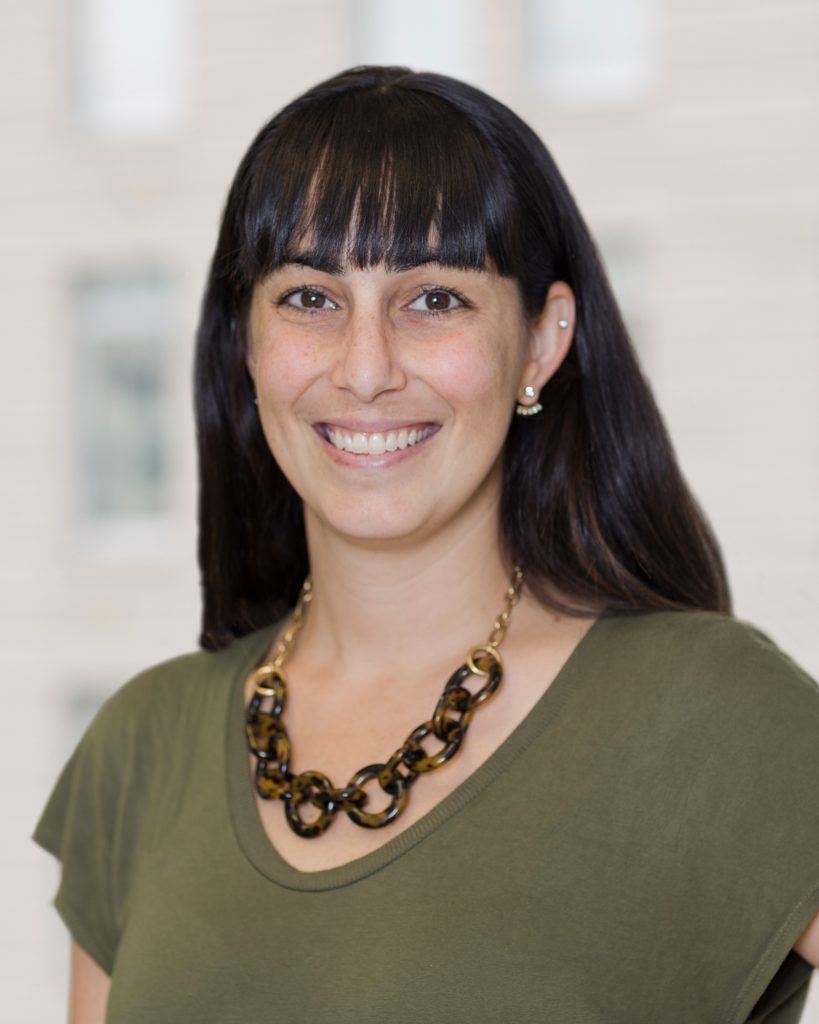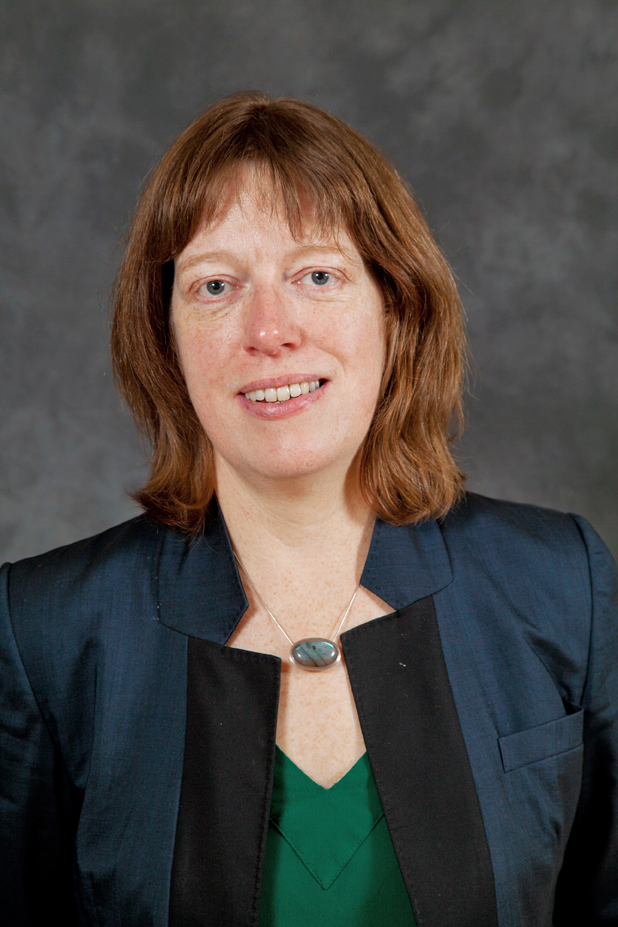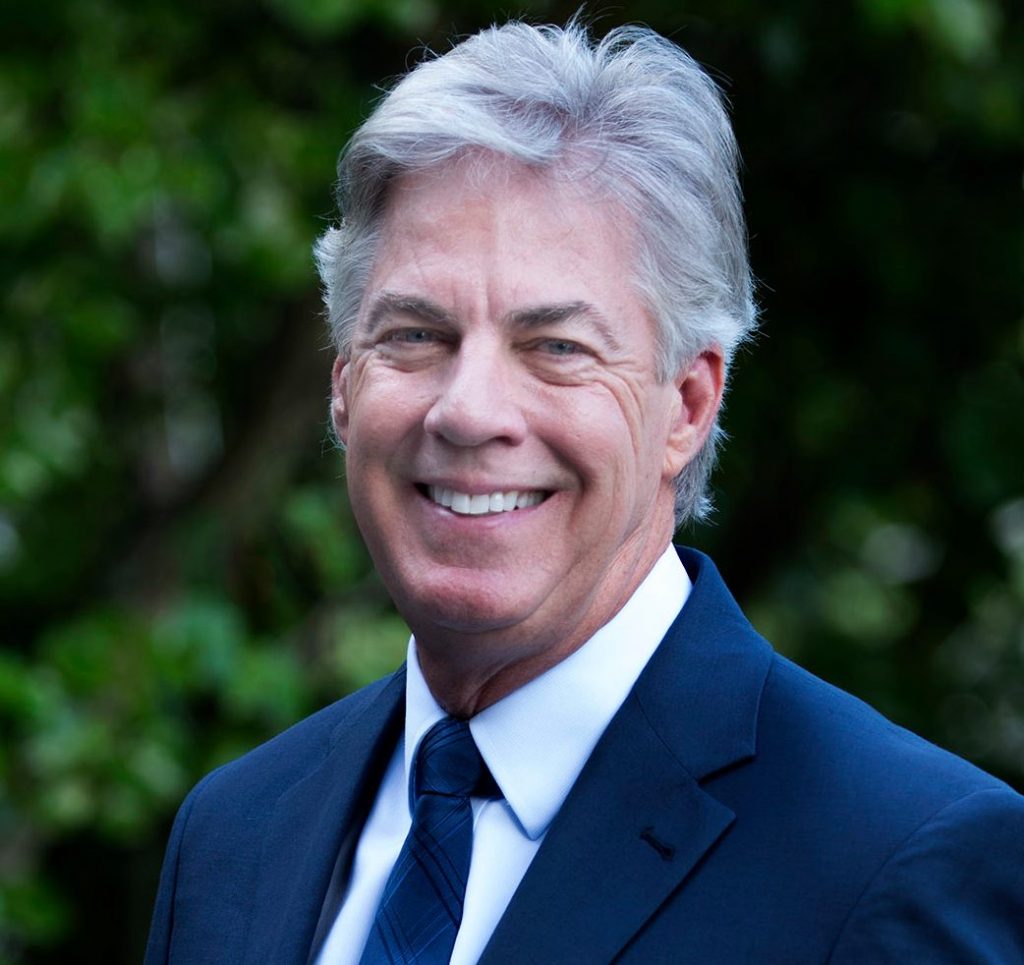
- This event has passed.
Summer Institute on Implementation Science
Event Navigation
This event is co-hosted by the Jordan Institute for Families | UNC School of Social Work, the Frank Porter Graham Child Development Institute, and National Implementation Research Network (NIRN). Generous support for this event has been provided by The Annie E. Casey Foundation.
A special thanks to the UNC Gillings School of Global Public Health and the UNC School of Education for their co-sponsorship.
*Information about the 2019 Summer Institute is available below, including materials associated with Pre-Institute Workshops, breakout sessions, and plenary talks. Information about the event advisory group, planning committee, supporters, and presenters is available below.
Summer Institute on Implementation Science (June, 2019)
Beginning the Conversation on Equity and Implementation Science
Purpose
The second annual Summer Institute seeks to share methods and tools for integrating equity and inclusion in implementation science and practice.
Intended Participants
- Social workers and public health professionals serving as agency leaders, directors, program managers, and program evaluators
- Implementation researchers and practitioners
Objectives
The Institute will support social workers and public health professionals to:
- Identify strategies for equitable implementation of innovations and evidence-based and evidence-informed practices
- Use evidence to promote improved and equitable outcomes for people and communities
The Institute will support implementation researchers and practitioners to:
- Identify research questions that amplify an equity focus
- Identify changes that are needed to the pedagogy, frameworks, and measures of implementation science to incorporate attention to equity
- Use methods that increase stakeholder participation in implementation efforts
*For additional media related to implementation, tune in to the National Implementation Research Network podcast!
2019 Summer Institute Agenda with Materials
Pre-Institute Workshops: Building Foundations in Implementation Science and Equity (June 10, 2019)
- 9:00 – 12:30 – Morning Workshops
- Foundations in Equity (Joanna Shoffner Scott and Paula Dressel, JustPartners, Inc.)
- Foundations in Implementation Science: Frameworks for Supporting Implementation (Leah Bartley, Oscar Fleming, and Aisling Sheehan)
- 12:30 – 1:30 – Lunch
- 1:30 – 5:00 – Afternoon Workshops
Summer Institute Day 1: Beginning a Conversation on Equitable Implementation (June 11, 2019)
- 8:30 – 9:00 – Welcome and Opening Remarks (Gary Bowen, Ayse Belger, Bob Blouin, Sarah Verbiest, and Allison Metz)
- 9:00 – 9:45 – Plenary: Reframing Implementation Science to Address Healthcare Inequities (Leo Cabassa)
- 10:00 – 10:45 – Plenary: Five Recommendations for Implementation Science to Advance Equity (Kim DuMont, Allison Metz and Beadsie Woo)
- 10:45 – 10:55 – Institute Overview: What comes next? (Sarah Verbiest)
- 11:15 – 12:30 – Group Breakout: Beginning the Conversation on Implementation Science and Equity
- 12:30 – 1:30 – Lunch
- 1:30 – 3:15 – Group Breakout:
- Breakout A: Understanding Group Dynamics to Improve Teamwork (Marilyn Ghezzi and Hayden Dawes)
- Breakout B: Using Data to Promote Equitable Implementation: Decision-Making, Data, and Uncertainty in Complex Systems (Kirsten Kainz and Rohit Ramaswamy)
- Breakout C: Assessing Fit and Feasibility for Implementation: A Country Wide Case Example (Allison Metz, Laura Louison, Judy Thomson and Marita Brack)
- Breakout D: Interrogating “Community” and Equity in Implementation: Lessons Learned from the Community Defined Evidence Project (Linda Callejas)
- 3:30 – 4:30 – Plenary: Implementation Science Using a Culturally Responsive and Racial Equity Lens (Paul Elam)
- 5:00 – 6:30 – Reception and Networking
Summer Institute Day 2: Practicing Implementation Strategies to Advance Equity (June 12, 2019)
- 8:30 – 8:45 – Reflections from Day 1 (Allison Metz and Sarah Verbiest)
- 8:45 – 10:00 – Plenary: Implementation Strategies and Stakeholder Engagement
- The Possibilities and Pitfalls of Stakeholder Engagement: Developing and Tailoring Implementation Strategies (Amber Haley and Byron Powell)
- PowerPoint Presentation
- Video
- Stakeholder Engagement: Finding the Fit through Diversity, Equity, and Inclusion (Lisa Saldana)
- The Possibilities and Pitfalls of Stakeholder Engagement: Developing and Tailoring Implementation Strategies (Amber Haley and Byron Powell)
- 10:30 – 12:00 – Group Breakout:
- Breakout A: Is My Implementation Practice Culturally Responsive? (Paul Elam and Jen Schroeder)
- Breakout B: Building Equitable Implementation Teams (Oscar Fleming and Angela Lewis)
- Breakout C: Building Trust to Lead Implementation (Leah Bartley and Allison Metz)
- Breakout D: When Less Really is More: Putting Data Visualization Best Practices to Work (Audrey Loper and Todd Jensen)
- 12:00 – 1:00 – Lunch
- 1:00 – 1:45 – Plenary: Advancing Equity through Policy Implementation: Seizing the Opportunity within the Family First Prevention Services Act (Alexandra Citrin)
- 2:15 – 3:45 – Application Labs: What, So What, Now What?
- 4:00 – 4:30 – Closing Remarks: Reflections on the Intersection of Implementation Science and Equity
Additional Resources
- Summer Institute Guidelines for Dialogue
- Putting Equity Concerns at the Center of Knowledge Development
- Targeted & Universal Strategies Achieve Better and More Equitable Results
- 2020 Census: Promoting Reliable Data
Advisory Group
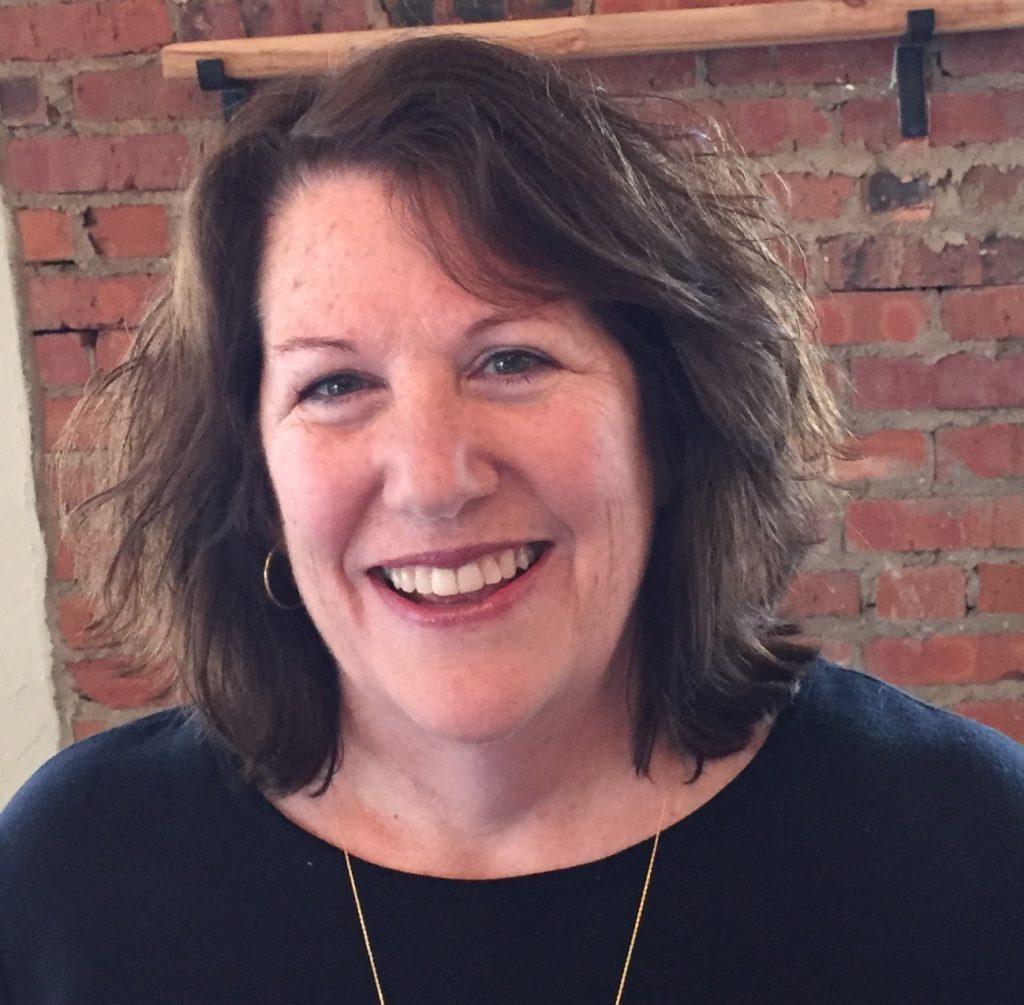 Allison Blake, Chief Executive Officer, Child and Family Agency of Southeastern Connecticut
Allison Blake, Chief Executive Officer, Child and Family Agency of Southeastern Connecticut
 Brandy Dawson, Associate Director, Rural Forward NC
Brandy Dawson, Associate Director, Rural Forward NC
 Paul Elam, Chief Strategy Officer, Michigan Public Health Institute
Paul Elam, Chief Strategy Officer, Michigan Public Health Institute
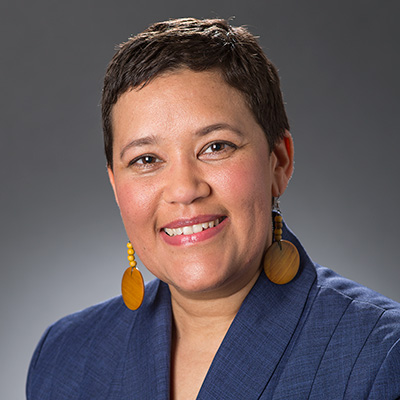 Angelique Kedem, Senior Associate, The Annie E. Casey Foundation
Angelique Kedem, Senior Associate, The Annie E. Casey Foundation
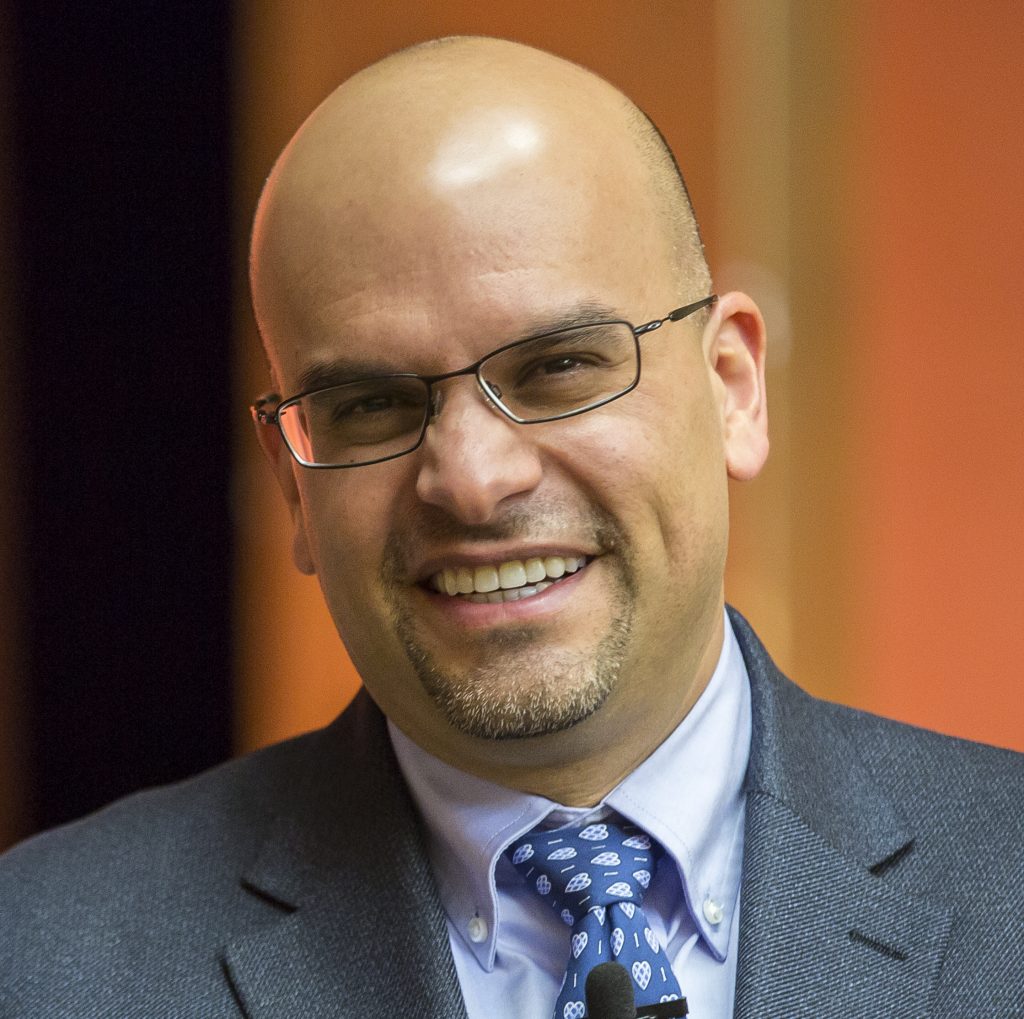 Ruben Parra-Cardona, Associate Professor, Steve Hicks School of Social Work, University of Texas at Austin
Ruben Parra-Cardona, Associate Professor, Steve Hicks School of Social Work, University of Texas at Austin
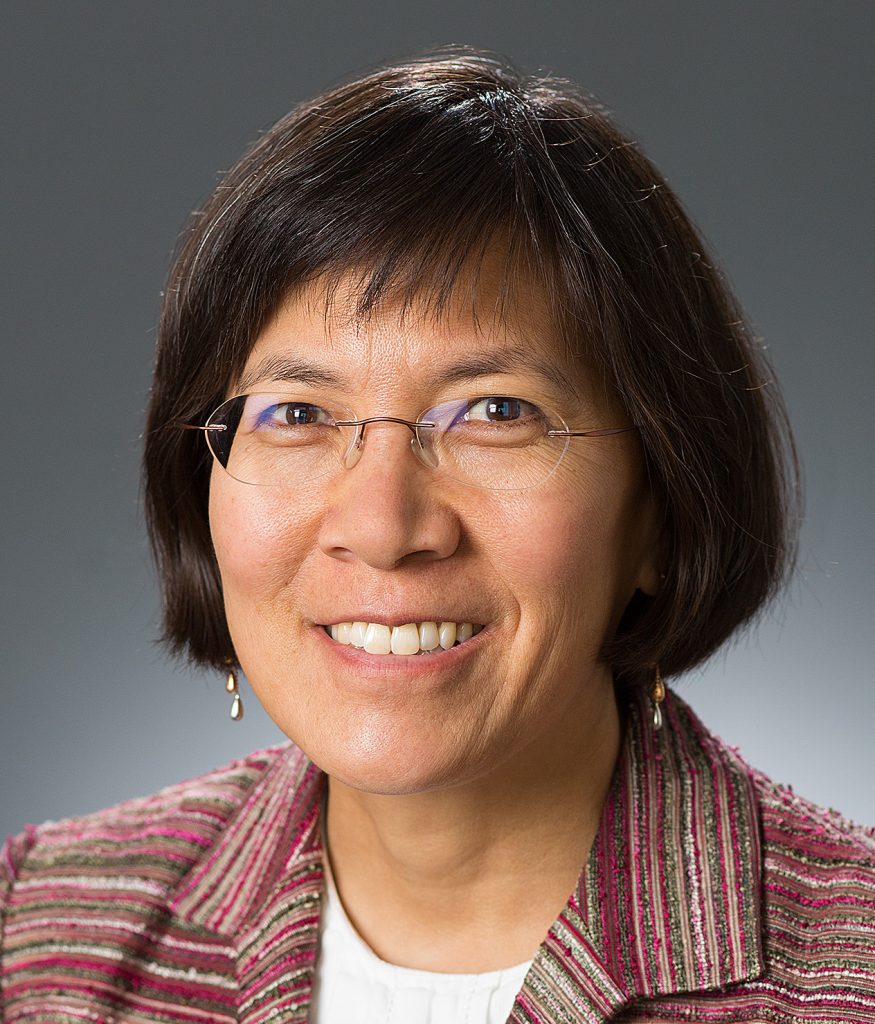 Beadsie Woo, Senior Associate, The Annie E. Casey Foundation
Beadsie Woo, Senior Associate, The Annie E. Casey Foundation
Summer Institute Planning Committee
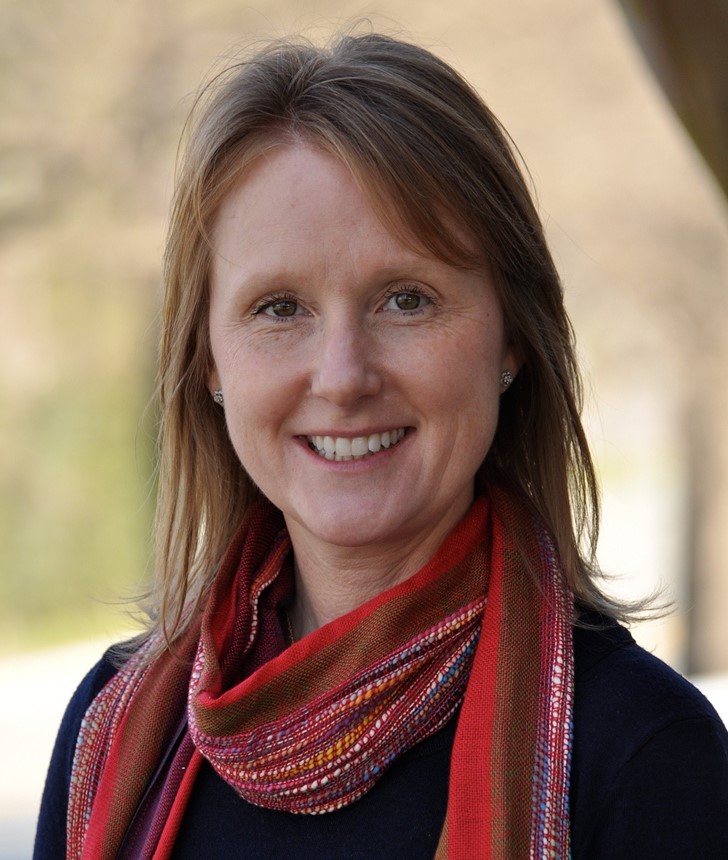 Co-Chair: Allison Metz – Director of the National Implementation Research Network (NIRN), Senior Research Scientist at the Frank Porter Graham Child Development Institute; Research Professor at the School of Social Work, University of North Carolina-Chapel Hill
Co-Chair: Allison Metz – Director of the National Implementation Research Network (NIRN), Senior Research Scientist at the Frank Porter Graham Child Development Institute; Research Professor at the School of Social Work, University of North Carolina-Chapel Hill
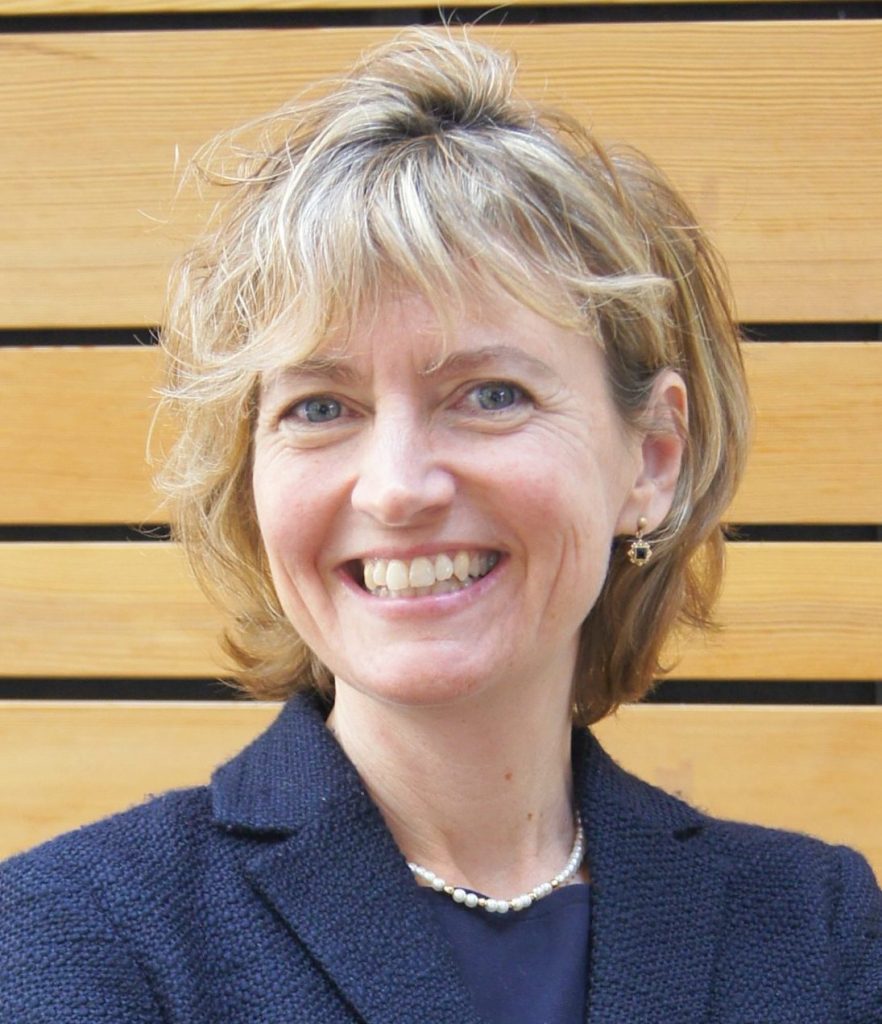 Co-Chair: Sarah Verbiest – Director of the Jordan Institute for Families, John A. Tate Early Career Scholars for Children in Need Professor at the School of Social Work, University of North Carolina at Chapel Hill; Executive Director of the Center for Maternal and Infant Health
Co-Chair: Sarah Verbiest – Director of the Jordan Institute for Families, John A. Tate Early Career Scholars for Children in Need Professor at the School of Social Work, University of North Carolina at Chapel Hill; Executive Director of the Center for Maternal and Infant Health
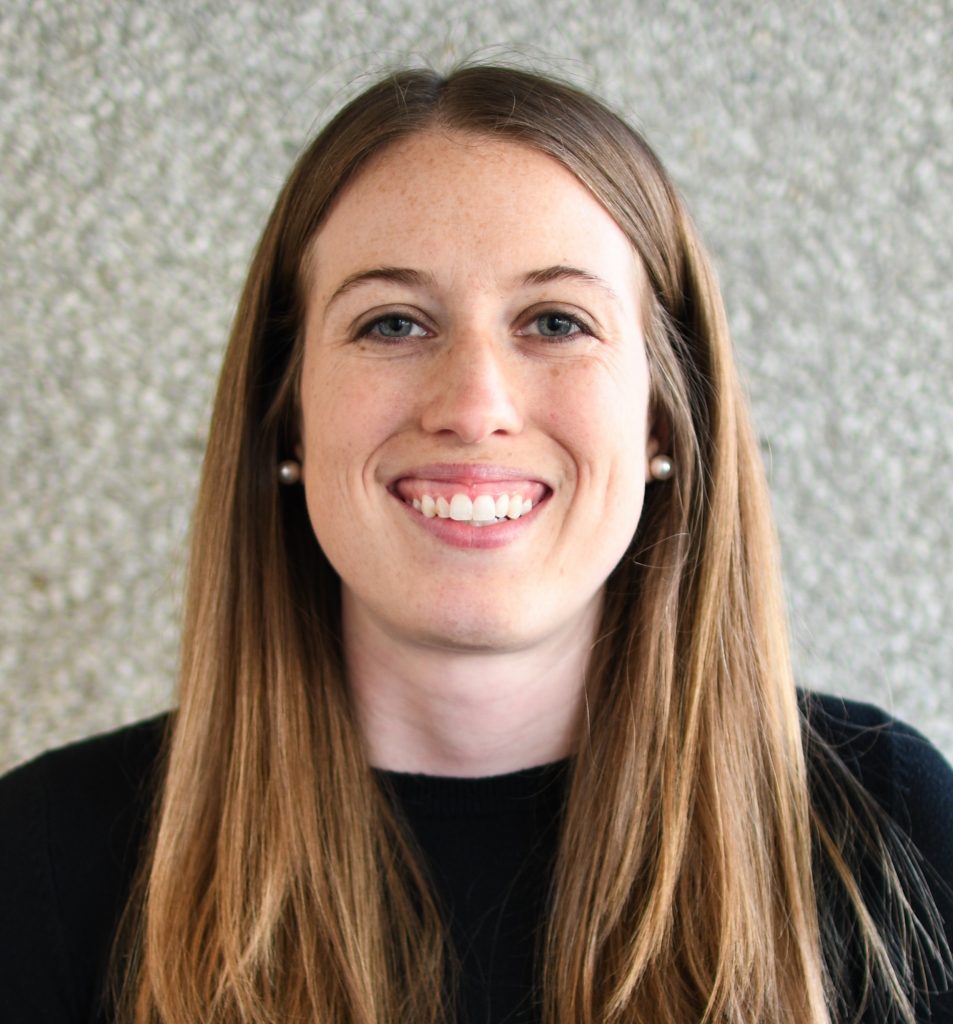 Member: Amanda Farley – Project Manager, National Implementation Research Network (NIRN), Frank Porter Graham Child Development Institute
Member: Amanda Farley – Project Manager, National Implementation Research Network (NIRN), Frank Porter Graham Child Development Institute
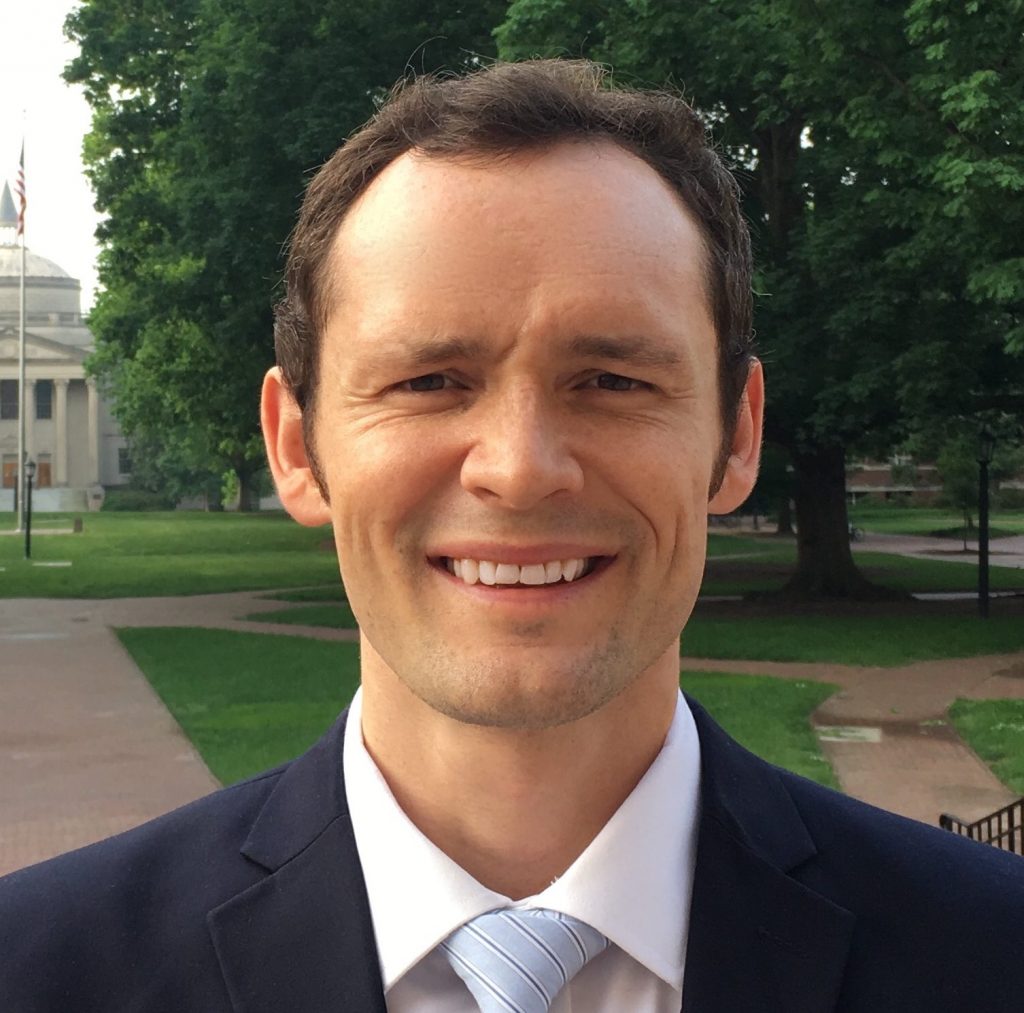 Member: Todd Jensen – Research Associate, Jordan Institute for Families; Research Assistant Professor at the School of Social Work, University of North Carolina at Chapel Hill
Member: Todd Jensen – Research Associate, Jordan Institute for Families; Research Assistant Professor at the School of Social Work, University of North Carolina at Chapel Hill
We are excited to welcome our outstanding Speakers:
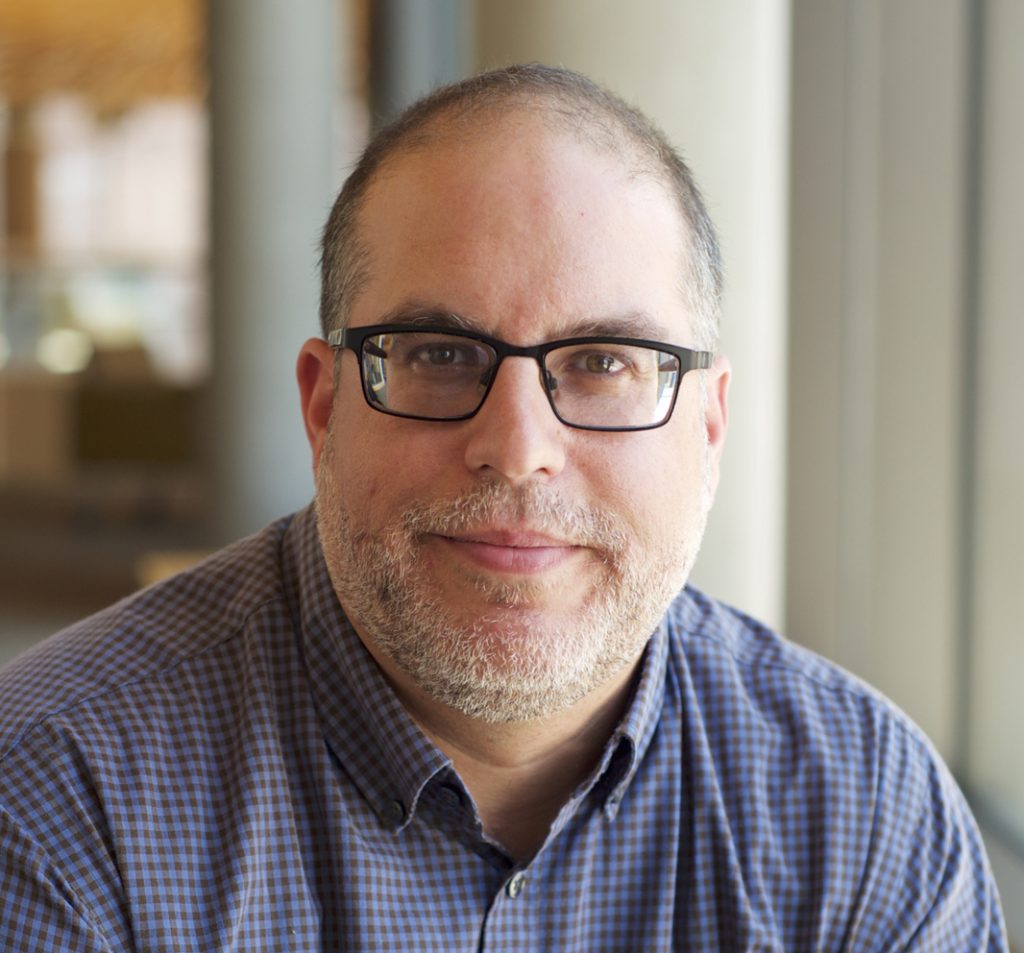 Leopoldo J. Cabassa, PhD, MSW is an Associate Professor and the Director of the NIMH T32 Training Program in Mental Health Services Research at the Brown School of Social Work at Washington University in St. Louis. His research blends quantitative and qualitative methods, implementation science, intervention research and community engagement to examine health disparities among racial/ethnic minorities with serious mental illness (SMI; e.g., schizophrenia, bipolar disorder) and inform the development and implementation of interventions to reduce these health inequities. His work has been supported by the National Institute of Mental Health, the Substance Abuse and Mental Health Services Administration,the Robert Wood Johnson Foundation, and the New York State Office of Mental Health. He recently completed a career development award from the NIMH focusing on implementing health care interventions for Hispanics with SMI and is currently leading an R01 (also from NIMH)testing the effectiveness and examining the implementation of a peer-led healthy lifestyle intervention (Peer GLB) in supportive housing agencies serving diverse clients with SMI who are overweight or obese.Heteaches graduate level courses in research and evaluation methods, foundations of social work practice, implementation science, and social work with Latino populations. His is a fellow of the Society for Social Work and Research and a standing member of the Health Disparities and Equity Promotion study section of the National Institutes of Health.
Leopoldo J. Cabassa, PhD, MSW is an Associate Professor and the Director of the NIMH T32 Training Program in Mental Health Services Research at the Brown School of Social Work at Washington University in St. Louis. His research blends quantitative and qualitative methods, implementation science, intervention research and community engagement to examine health disparities among racial/ethnic minorities with serious mental illness (SMI; e.g., schizophrenia, bipolar disorder) and inform the development and implementation of interventions to reduce these health inequities. His work has been supported by the National Institute of Mental Health, the Substance Abuse and Mental Health Services Administration,the Robert Wood Johnson Foundation, and the New York State Office of Mental Health. He recently completed a career development award from the NIMH focusing on implementing health care interventions for Hispanics with SMI and is currently leading an R01 (also from NIMH)testing the effectiveness and examining the implementation of a peer-led healthy lifestyle intervention (Peer GLB) in supportive housing agencies serving diverse clients with SMI who are overweight or obese.Heteaches graduate level courses in research and evaluation methods, foundations of social work practice, implementation science, and social work with Latino populations. His is a fellow of the Society for Social Work and Research and a standing member of the Health Disparities and Equity Promotion study section of the National Institutes of Health.
 Paul Elam, PhD serves as MPHI’s Chief Strategy Officer. He is responsible for aligning the priorities of MPHI with national interests as well as diversifying the Institute’s portfolio to address cutting edge issues that affect the health and well-being of our society. His past leadership includes mentoring and training professionals from historically underrepresented groups with evaluation expertise in the areas of child welfare and juvenile justice. His deep understanding of youth violence and prevention, crime and justice, and child maltreatment is nationally recognized. Dr. Elam brings a wealth of knowledge and experience measuring racial and ethnic disproportionality and believes that sound public policy analysis should include an examination of whether all people are being treated fairly and equitably. Before joining MPHI, Dr. Elam was president of Public Policy Associates, Inc., where he worked closely with government, philanthropic, university, and nonprofit clients, providing strategic consultation to advance public policy decisions in ways that would improve lives, advance social justice and produce equitable outcomes. Dr. Elam earned a PhD in Family and Child Ecology, a Master’s degree in Criminal Justice and Urban Studies, and a Bachelor’s degree in Criminal Justice, all from Michigan State University.
Paul Elam, PhD serves as MPHI’s Chief Strategy Officer. He is responsible for aligning the priorities of MPHI with national interests as well as diversifying the Institute’s portfolio to address cutting edge issues that affect the health and well-being of our society. His past leadership includes mentoring and training professionals from historically underrepresented groups with evaluation expertise in the areas of child welfare and juvenile justice. His deep understanding of youth violence and prevention, crime and justice, and child maltreatment is nationally recognized. Dr. Elam brings a wealth of knowledge and experience measuring racial and ethnic disproportionality and believes that sound public policy analysis should include an examination of whether all people are being treated fairly and equitably. Before joining MPHI, Dr. Elam was president of Public Policy Associates, Inc., where he worked closely with government, philanthropic, university, and nonprofit clients, providing strategic consultation to advance public policy decisions in ways that would improve lives, advance social justice and produce equitable outcomes. Dr. Elam earned a PhD in Family and Child Ecology, a Master’s degree in Criminal Justice and Urban Studies, and a Bachelor’s degree in Criminal Justice, all from Michigan State University.
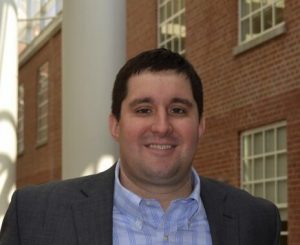 Byron J. Powell, PhD is an Assistant Professor in the Department of Health Policy and Management at the Gillings School of Global Public Health and a Fellow at the Cecil G. Sheps Center for Health Services Research and the Frank Porter Graham Child Development Institute.
Byron J. Powell, PhD is an Assistant Professor in the Department of Health Policy and Management at the Gillings School of Global Public Health and a Fellow at the Cecil G. Sheps Center for Health Services Research and the Frank Porter Graham Child Development Institute.
Byron’s research focuses on efforts to improve the quality of health, behavioral health, and social services. Specifically, his scholarship has focused on 1) identifying contextual barriers and facilitators to implementing evidence-based practices in routine care, 2) identifying and assessing the effectiveness of implementation strategies, 3) developing methods for tailoring implementation strategies to address determinants of effective implementation, and 4) advancing research methodology in implementation science. His work is currently supported by a Mentored Research Scientist Development Award from the National Institute of Mental Health (K01MH113806).
Byron has received National Institutes of Health-funded fellowships from the Training Institute for Dissemination and Implementation Research in Health (2015); Child, Intervention, Prevention, and Services Research Mentoring Network (2015-2016); Implementation Research Institute (2016-2018); and Mixed Methods Research Training Program for the Health Sciences (2018-2019). He serves on the editorial board of Implementation Science, and is Co-Chair of the Implementation Special Interest Group of the Society for Social Work and Research and the New Investigator Network of Expertise of the Society for Implementation Research Collaboration.
In addition to his independent and collaborative research, Byron teaches courses on implementation research and practice, and provides methodological consultation related to implementation research through the Community Engagement Core (CARES) of the North Carolina Translational & Clinical Sciences Institute (NC TraCS) and the Social and Behavioral Research Core of UNC’s Center for AIDS Research. He is also a Core Faculty Member of the UNC-RTI Consortium for Implementation Science.
 Laura Louison, MSW, MSPH is the Associate Director of Resource & Capacity Development and an Advanced Implementation Specialist with the National Implementation Research Network (NIRN) at the Frank Porter Graham Child Development Institute at UNC Chapel Hill. In her current role, she works with state and local agencies to support the use of implementation science in their health and human services programs. Laura’s work focuses on building implementation capacity in complex and multi-sector systems, with a particular interest in rural and frontier communities.
Laura Louison, MSW, MSPH is the Associate Director of Resource & Capacity Development and an Advanced Implementation Specialist with the National Implementation Research Network (NIRN) at the Frank Porter Graham Child Development Institute at UNC Chapel Hill. In her current role, she works with state and local agencies to support the use of implementation science in their health and human services programs. Laura’s work focuses on building implementation capacity in complex and multi-sector systems, with a particular interest in rural and frontier communities.
Laura previously served as director of the North Carolina Maternal, Infant, and Early Childhood Home Visiting Program at the North Carolina Division of Public Health. There, she was responsible for the implementation of the federal MIECHV program and statewide implementation of Nurse Family Partnership in collaboration with public and private stakeholders. Laura is a public health social worker with over fifteen years of experience in implementation of maternal and child health programs and quality improvement with public and non-profit agencies.
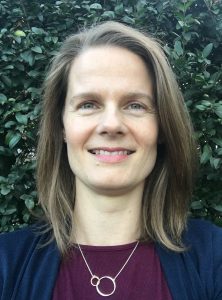 Audrey Loper, MPH, MS has worked in public health for the past fifteen years, with a focus on maternal and child health, implementation of evidence-based programs, data use, and evaluation. She is currently an Implementation Specialist with the National Implementation Research Network (NIRN) at the Frank Porter Graham Child Development Institute at the University of North Carolina at Chapel Hill, where she provides technical assistance on implementation science best practices. Audrey previously served as the Evaluation Consultant for the North Carolina Division of Public Health’s Teen Pregnancy Prevention Initiatives and has worked as a childbirth educator and volunteer doula. She received her Master of Public Health from UNC Chapel Hill, and her Master of Science from the University of California, Davis.
Audrey Loper, MPH, MS has worked in public health for the past fifteen years, with a focus on maternal and child health, implementation of evidence-based programs, data use, and evaluation. She is currently an Implementation Specialist with the National Implementation Research Network (NIRN) at the Frank Porter Graham Child Development Institute at the University of North Carolina at Chapel Hill, where she provides technical assistance on implementation science best practices. Audrey previously served as the Evaluation Consultant for the North Carolina Division of Public Health’s Teen Pregnancy Prevention Initiatives and has worked as a childbirth educator and volunteer doula. She received her Master of Public Health from UNC Chapel Hill, and her Master of Science from the University of California, Davis.
Alexandra Citrin, Senior Associate, is an expert in child welfare policy and practice and its effect on communities of color, LGBTQ+ youth, and immigrant families. Citrin has been deeply involved in working with states and national partners to understand the complexities and requirements of the Family First Prevention Services Act and identifying opportunities within the bill to advance child welfare system reform efforts both as it relates to prevention services and the reduction of congregate care. Her policy expertise includes child welfare system and finance reform, health care and immigration – with a focus on using frontline practice-knowledge to inform equity-focused policymaking. Citrin’s system-reform work focuses on providing technical assistance to state and local child welfare systems through child welfare systems operating under federal consent decree and the Infant Toddler Court Team Program. Prior to joining CSSP, she was a family advocate at the Center for Family Representation, Inc. in New York, where she engaged in direct practice with parents and families involved in the child welfare system; Citrin was a Child Welfare Scholar at the University of Michigan where she earned a master’s degree from the Graduate School of Social Work and a master’s degree in public policy from the Ford School.
Katie Burke is a senior manager at the Centre for Effective Services (CES) in Dublin, where she oversees much of CES’s work to support policy makers in Ireland. CES is a non-profit intermediary organization in Ireland and Northern Ireland that works with agencies, government departments and service providers to improve the use of evidence in human/social services, and to support the implementation of services, programs and projects. Katie has a particular interest in implementation science and led CES’s work to establish the Implementation Network for Ireland and Northern Ireland, and collaborated with other European leaders to develop the European Implementation Collaborative. She is currently a board member of EIC. Katie and CES have collaborated with Trinity College Dublin on developing and delivering the foundation modules for the new Masters of Science in Implementation Science at Trinity College Dublin. Prior to joining CES in 2009, Katie was a management consultant in Ireland and France. She was a director of Prospectus Consultants, based in Dublin, where she provided strategic consultancy to government departments and agencies, and community and voluntary organisations across the health, social care and education sectors. Katie has a Master of Science in Foreign Service from Georgetown University and a Bachelor’s degree in Politics and Economics from University College Dublin.
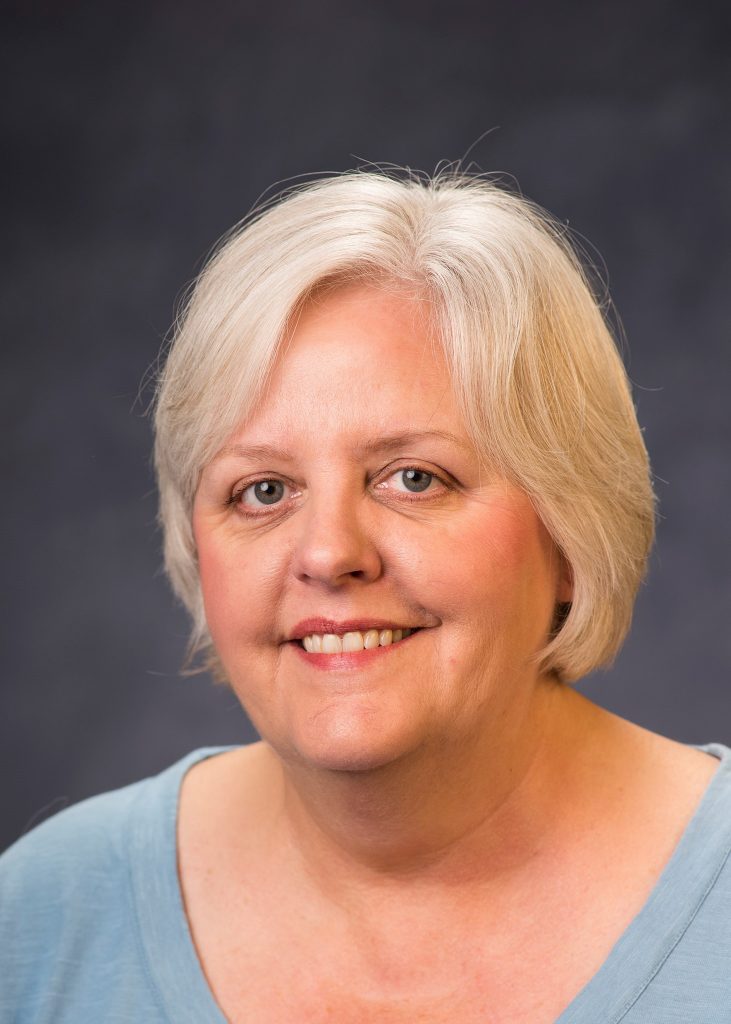 Marilyn Ghezzi, MSW, LCSW is a Clinical Assistant Professor at the UNC-Chapel Hill School of Social Work. She received her MSW from UNC-Chapel Hill in 1988. Marilyn currently teaches advanced clinical practice courses, including a course on Social Work with Groups. Prior to joining the full time faculty in 2008, Marilyn worked as a clinical social worker for over twenty years. In addition to teaching, Marilyn is co-investigator on a pilot study of Specialty Mental Health Probation in North Carolina. As part of her study responsibilities, Marilyn trains and consults with probation officers, helping them to better serve mentally ill and substance using probationers on their caseloads.
Marilyn Ghezzi, MSW, LCSW is a Clinical Assistant Professor at the UNC-Chapel Hill School of Social Work. She received her MSW from UNC-Chapel Hill in 1988. Marilyn currently teaches advanced clinical practice courses, including a course on Social Work with Groups. Prior to joining the full time faculty in 2008, Marilyn worked as a clinical social worker for over twenty years. In addition to teaching, Marilyn is co-investigator on a pilot study of Specialty Mental Health Probation in North Carolina. As part of her study responsibilities, Marilyn trains and consults with probation officers, helping them to better serve mentally ill and substance using probationers on their caseloads.
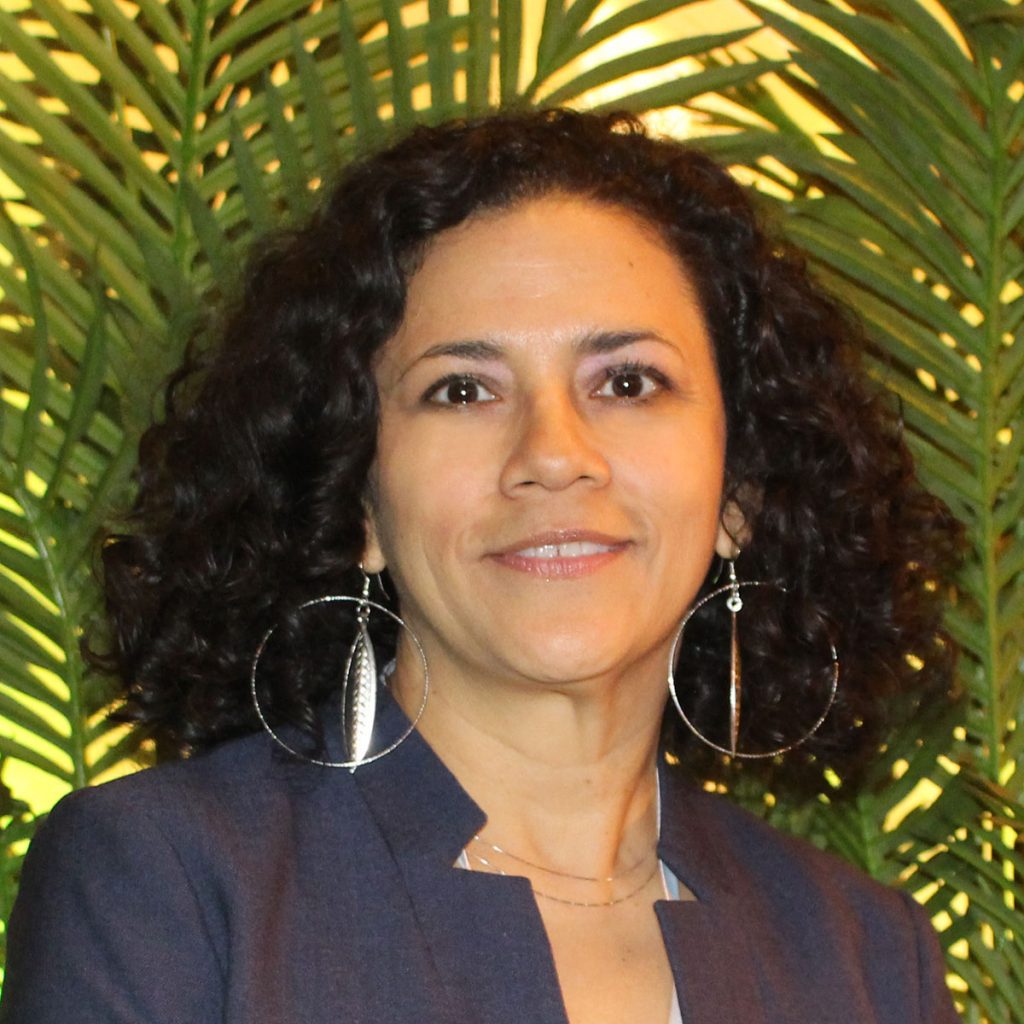 Linda M. Callejas, PhD is a Research Assistant Professor in the Department of Child and Family Studies at the Louis de la Parte, Florida Mental Health Institute, University of South Florida. Dr. Callejas is a socio-cultural anthropologist that conducts research and evaluation in the areas of collaborative community development initiatives, behavioral health disparities, and innovative practices/interventions designed to increase engagement with racially and ethnically diverse communities. Her research broadly focuses on understanding how aspects of the social environment in urban neighborhoods affect residents’ behavioral health and well-being, particularly in cities experiencing large-scale redevelopment. She has also done extensive work examining how community residents can provide general support and system navigation to their fellow residents in traditionally underserved communities. In this regard, she has conducted evaluation, research, and training with a variety of programs and organizations that include natural helpers, promortoras, and other community-based informal supports. Dr. Callejas currently serves as the Principal Investigator for two federally funded evaluation studies involving RCTs with families who are at risk of permanently losing their children due to maltreatment and substance use disorder. She also leads a technical assistance team focused on promoting cultural competence and behavioral health equity as a partner to the Technical Assistance Network for Children’s Behavioral Health (TA Network), which supports behavioral health systems across the country focused on better integrating and coordinating the systems that serve children, youth, and young adults with behavioral health needs and their families. In addition to these projects, Dr. Callejas serves as a lead faculty member and advisor for the USF MS Program in Child and Adolescent Behavioral Health.
Linda M. Callejas, PhD is a Research Assistant Professor in the Department of Child and Family Studies at the Louis de la Parte, Florida Mental Health Institute, University of South Florida. Dr. Callejas is a socio-cultural anthropologist that conducts research and evaluation in the areas of collaborative community development initiatives, behavioral health disparities, and innovative practices/interventions designed to increase engagement with racially and ethnically diverse communities. Her research broadly focuses on understanding how aspects of the social environment in urban neighborhoods affect residents’ behavioral health and well-being, particularly in cities experiencing large-scale redevelopment. She has also done extensive work examining how community residents can provide general support and system navigation to their fellow residents in traditionally underserved communities. In this regard, she has conducted evaluation, research, and training with a variety of programs and organizations that include natural helpers, promortoras, and other community-based informal supports. Dr. Callejas currently serves as the Principal Investigator for two federally funded evaluation studies involving RCTs with families who are at risk of permanently losing their children due to maltreatment and substance use disorder. She also leads a technical assistance team focused on promoting cultural competence and behavioral health equity as a partner to the Technical Assistance Network for Children’s Behavioral Health (TA Network), which supports behavioral health systems across the country focused on better integrating and coordinating the systems that serve children, youth, and young adults with behavioral health needs and their families. In addition to these projects, Dr. Callejas serves as a lead faculty member and advisor for the USF MS Program in Child and Adolescent Behavioral Health.
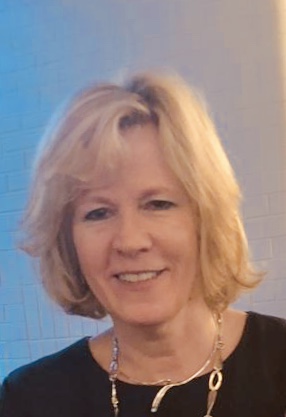 Judy Thomson is the Director of Training for Psychology Services at NHS Education for Scotland (NES). NES is responsible for the training of the healthcare disciplines for the National Health Service (NHS) in Scotland. The Psychology Directorate has two main functions: ensuring that the training of Psychologists for the NHS in Scotland meets service needs, and up-skilling the multi-professional workforce in psychological care. Judy also has corporate leadership responsibilities in mental health, learning disability and dementia, workforce development for multi-sector children and young peoples mental health services and suicide prevention. Judy is currently leading the Workforce Subgroup of the Children and Young People’s Mental Health Task Force commissioned by Scottish Government with the Confederation of Scottish Local Authorities. Judy trained as a Clinical Psychologist at the University of Edinburgh and has over 30 years experience as a Clinical Psychologist working clinically within Children and Young Peoples Mental Health and Learning Disability Services. Judy has a long-standing commitment to early intervention and evidence based psychological interventions and in recent years has been interested in exploring the potential of ideas from implementation science to maximise the service impact of education and training.
Judy Thomson is the Director of Training for Psychology Services at NHS Education for Scotland (NES). NES is responsible for the training of the healthcare disciplines for the National Health Service (NHS) in Scotland. The Psychology Directorate has two main functions: ensuring that the training of Psychologists for the NHS in Scotland meets service needs, and up-skilling the multi-professional workforce in psychological care. Judy also has corporate leadership responsibilities in mental health, learning disability and dementia, workforce development for multi-sector children and young peoples mental health services and suicide prevention. Judy is currently leading the Workforce Subgroup of the Children and Young People’s Mental Health Task Force commissioned by Scottish Government with the Confederation of Scottish Local Authorities. Judy trained as a Clinical Psychologist at the University of Edinburgh and has over 30 years experience as a Clinical Psychologist working clinically within Children and Young Peoples Mental Health and Learning Disability Services. Judy has a long-standing commitment to early intervention and evidence based psychological interventions and in recent years has been interested in exploring the potential of ideas from implementation science to maximise the service impact of education and training.
 Joanna Shoffner Scott, PhD is an experienced management consultant with deep DEI expertise. She is the founder and principal of Stamey Street Consulting Group, LLC, and is a Senior Consultant with the Race Matters Institute of JustPartners, Inc. Joanna consults with organizations across the country to advance racial equity as a mission-critical goal. She is a skilled trainer and facilitator. She has more than 15 years of experience in research, advocacy, government relations, and organizational management. Joanna is an experienced policy analyst in the areas of budget and tax policy, health, and nutrition, with an expertise on the intersection of race and equity in public systems. Joanna is a child advocate at heart. She is passionate about children’s issues and is deeply committed to disrupting structural racism in educational settings that serve young children. Joanna’s service to her community includes volunteering for a county feeding program for children. Joanna holds a Ph.D. in Public Policy from the University of Maryland, Baltimore County.
Joanna Shoffner Scott, PhD is an experienced management consultant with deep DEI expertise. She is the founder and principal of Stamey Street Consulting Group, LLC, and is a Senior Consultant with the Race Matters Institute of JustPartners, Inc. Joanna consults with organizations across the country to advance racial equity as a mission-critical goal. She is a skilled trainer and facilitator. She has more than 15 years of experience in research, advocacy, government relations, and organizational management. Joanna is an experienced policy analyst in the areas of budget and tax policy, health, and nutrition, with an expertise on the intersection of race and equity in public systems. Joanna is a child advocate at heart. She is passionate about children’s issues and is deeply committed to disrupting structural racism in educational settings that serve young children. Joanna’s service to her community includes volunteering for a county feeding program for children. Joanna holds a Ph.D. in Public Policy from the University of Maryland, Baltimore County.
 Paula Dressel, PhD is Vice President of JustPartners, Inc. and an original member of the Race Matters Institute, with which she has been training for over a decade. Her areas of interest around advancing racial equity include the impact of public policy, voter suppression and mass incarceration, and an explicit focus on white power and privilege. Prior to her work with JustPartners and the Race Matters Institute, she was Director of Planning, Research and Development at the Annie E. Casey Foundation and before that, a faculty member and administrator at Georgia State University in Atlanta. She is a widely published sociologist, with a Ph.D. from the University of Georgia.
Paula Dressel, PhD is Vice President of JustPartners, Inc. and an original member of the Race Matters Institute, with which she has been training for over a decade. Her areas of interest around advancing racial equity include the impact of public policy, voter suppression and mass incarceration, and an explicit focus on white power and privilege. Prior to her work with JustPartners and the Race Matters Institute, she was Director of Planning, Research and Development at the Annie E. Casey Foundation and before that, a faculty member and administrator at Georgia State University in Atlanta. She is a widely published sociologist, with a Ph.D. from the University of Georgia.
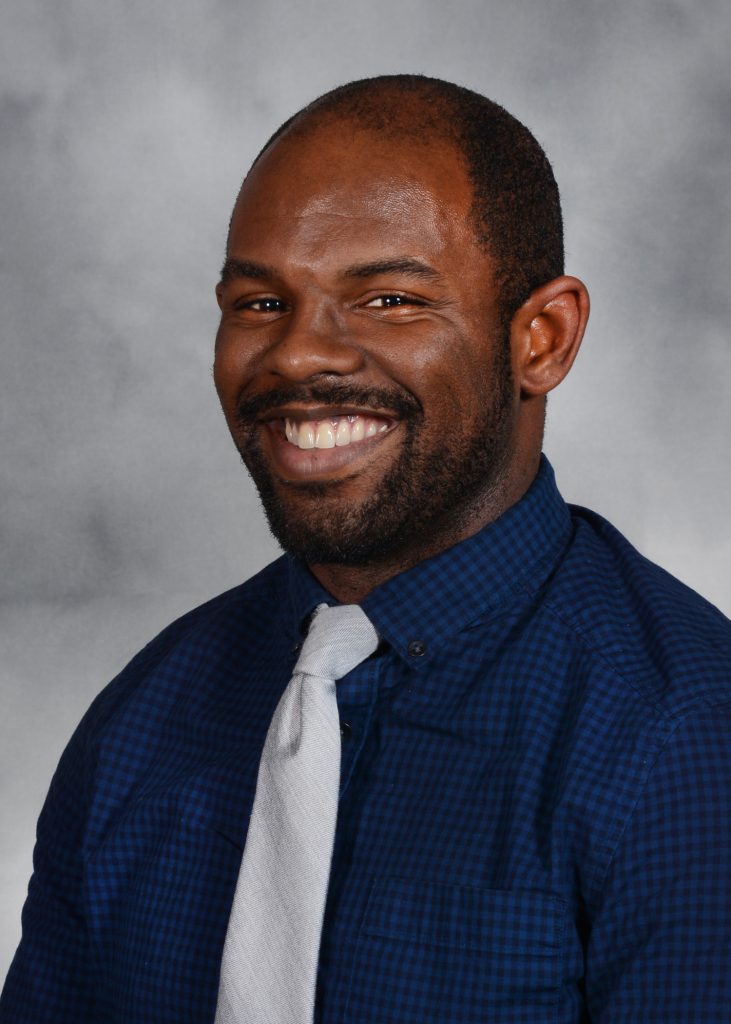 Hayden Dawes, LCSW, LCAS-A received his MSW from North Carolina State University and currently works as a clinical social worker/outpatient therapist at the Durham VA Healthcare System and in private practice at the AHB Center for Behavioral Health and Wellness in Durham. While he has worked with diverse populations including veterans with mental health and addiction issues, Hayden is particularly interested in clinical care with People of Color and Queer-Identified clients. Hayden has served as the vice-president of the North Carolina Society for Clinical Social Work since 2014 and participates in several work groups, committees and specialty treatment teams. Hayden has an inherent passion for group process, interpersonal dynamics and fostering relationships among colleagues and stakeholders. In Fall 2019, Hayden will begin his PhD in Social Work at the University of North Carolina-Chapel Hill. His research interest will be focused on operationalizing clinical interventions to increase provider cultural humility in direct care and agency settings.
Hayden Dawes, LCSW, LCAS-A received his MSW from North Carolina State University and currently works as a clinical social worker/outpatient therapist at the Durham VA Healthcare System and in private practice at the AHB Center for Behavioral Health and Wellness in Durham. While he has worked with diverse populations including veterans with mental health and addiction issues, Hayden is particularly interested in clinical care with People of Color and Queer-Identified clients. Hayden has served as the vice-president of the North Carolina Society for Clinical Social Work since 2014 and participates in several work groups, committees and specialty treatment teams. Hayden has an inherent passion for group process, interpersonal dynamics and fostering relationships among colleagues and stakeholders. In Fall 2019, Hayden will begin his PhD in Social Work at the University of North Carolina-Chapel Hill. His research interest will be focused on operationalizing clinical interventions to increase provider cultural humility in direct care and agency settings.
 Oscar Fleming, MSPH is an Implementation Scientist based at the National Implementation Research Network at the University of North Carolina at Chapel Hill. Mr. Fleming leads the Evidence-based Decision-Making Core for the National MCH Workforce Development Center, supporting public health professional and diverse coalitions to learn and actively apply implementation science to promote the health of children, families and communities. With the National Center for Early Childhood Development Teaching and Learning, Mr. Fleming works closely with Head Start professionals to enhance implementation capacity in service to improved programs and positive outcomes for children, families and communities Mr. Fleming has previously worked on public health, early childhood and community development programs in North Carolina, the US and in lower and middle-income countries around the world. His areas of interest include program design, implementation science, applied research, coaching, and team development. Mr. Fleming is a Clinical Assistant Professor with the Department of Maternal and Child Health and an Adjunct Assistant Professor in the Public Health Leadership Program, both at the UNC Gillings School of Global Public Health. Currently working to complete a Doctorate in Health Leadership, Mr. Fleming has a Master of Science of Public Health and Bachelor of Arts in International Studies degrees from the University of North Carolina at Chapel Hill.
Oscar Fleming, MSPH is an Implementation Scientist based at the National Implementation Research Network at the University of North Carolina at Chapel Hill. Mr. Fleming leads the Evidence-based Decision-Making Core for the National MCH Workforce Development Center, supporting public health professional and diverse coalitions to learn and actively apply implementation science to promote the health of children, families and communities. With the National Center for Early Childhood Development Teaching and Learning, Mr. Fleming works closely with Head Start professionals to enhance implementation capacity in service to improved programs and positive outcomes for children, families and communities Mr. Fleming has previously worked on public health, early childhood and community development programs in North Carolina, the US and in lower and middle-income countries around the world. His areas of interest include program design, implementation science, applied research, coaching, and team development. Mr. Fleming is a Clinical Assistant Professor with the Department of Maternal and Child Health and an Adjunct Assistant Professor in the Public Health Leadership Program, both at the UNC Gillings School of Global Public Health. Currently working to complete a Doctorate in Health Leadership, Mr. Fleming has a Master of Science of Public Health and Bachelor of Arts in International Studies degrees from the University of North Carolina at Chapel Hill.
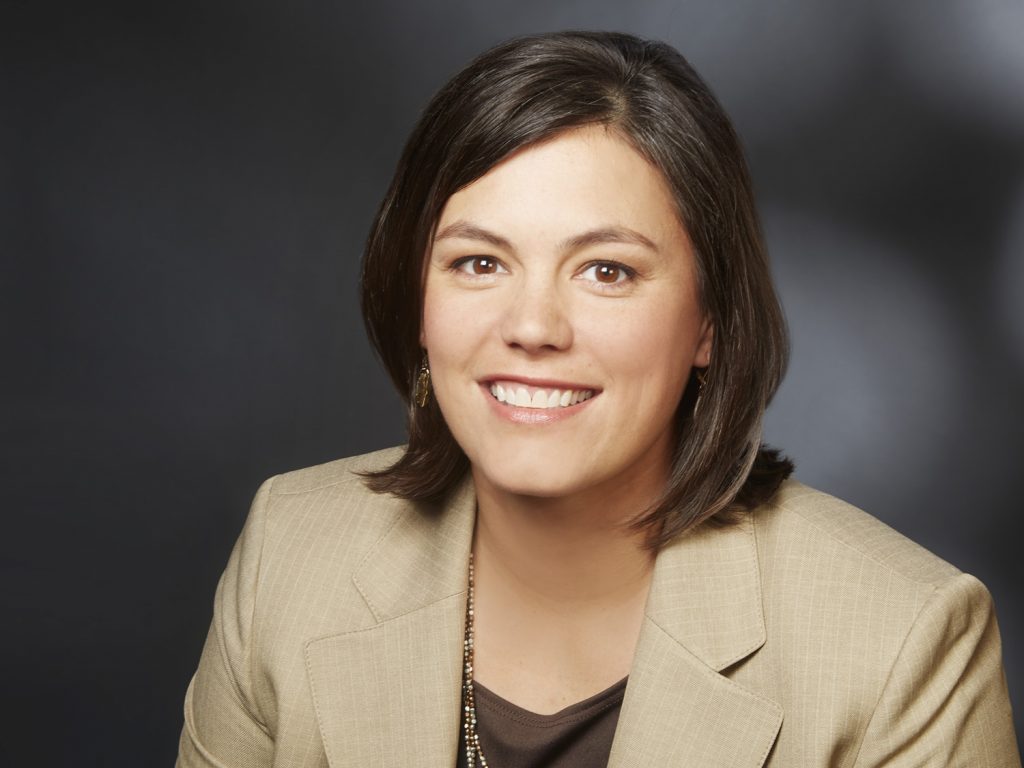 Jennifer Schroeder, PhD is a clinical child psychologist with over 15 years of experience consulting to nonprofit, education, government, and philanthropic organizations to improve and sustain effective programs and services for children, youth, and families. She is the founder and president of The Implementation Group, a strategic planning and evaluation firm that supports effective implementation practices in human services and education. She holds a doctorate in clinical child psychology from Bowling Green State University and completed pre- and post-doctoral fellowships at Yale University.
Jennifer Schroeder, PhD is a clinical child psychologist with over 15 years of experience consulting to nonprofit, education, government, and philanthropic organizations to improve and sustain effective programs and services for children, youth, and families. She is the founder and president of The Implementation Group, a strategic planning and evaluation firm that supports effective implementation practices in human services and education. She holds a doctorate in clinical child psychology from Bowling Green State University and completed pre- and post-doctoral fellowships at Yale University.
 Allison Metz, PhD is a developmental psychologist, Director of the National Implementation Research Network (NIRN), Senior Research Scientist at the Frank Porter Graham Child Development Institute, and Research Professor at the School of Social Work at The University of North Carolina-Chapel Hill. Allison specializes in the implementation, mainstreaming, and scaling of evidence to achieve social impact for children and families in a range of human service and education areas, with an emphasis on child welfare and early childhood service contexts. Allison’s work focuses in several key areas including: the development of evidence-informed practice models; the co-production of effective implementation and scaling strategies to improve the application of evidence in service delivery systems; and the development of skills and competencies for implementation practitioners. Allison serves on several national advisory boards and is an invited speaker and trainer internationally. She is a co-chair of the Summer Institute on Implementation Science at UNC-Chapel Hill. Allison is the author of many peer reviewed articles, briefs and white papers. She is co-editor of the widely read volume Applying Implementation Science in Early Childhood Program and Systems.
Allison Metz, PhD is a developmental psychologist, Director of the National Implementation Research Network (NIRN), Senior Research Scientist at the Frank Porter Graham Child Development Institute, and Research Professor at the School of Social Work at The University of North Carolina-Chapel Hill. Allison specializes in the implementation, mainstreaming, and scaling of evidence to achieve social impact for children and families in a range of human service and education areas, with an emphasis on child welfare and early childhood service contexts. Allison’s work focuses in several key areas including: the development of evidence-informed practice models; the co-production of effective implementation and scaling strategies to improve the application of evidence in service delivery systems; and the development of skills and competencies for implementation practitioners. Allison serves on several national advisory boards and is an invited speaker and trainer internationally. She is a co-chair of the Summer Institute on Implementation Science at UNC-Chapel Hill. Allison is the author of many peer reviewed articles, briefs and white papers. She is co-editor of the widely read volume Applying Implementation Science in Early Childhood Program and Systems.
 Sarah Verbiest, DrPH, MSW, MPH is a public health social worker, Director of the Jordan Institute for Families in the School of Social Work and Executive Director of the Center for Maternal and Infant Health in the School of Medicine at the University of North Carolina-Chapel Hill. With over 25 years-experience in the field of maternal and infant health Sarah has led many initiatives to improve maternal and infant health outcomes, with a particular focus on health equity. She is a principal investigator on two research projects focusing on postpartum health and wellness. She leads several statewide infant mortality prevention campaigns and is the principal investigator for a new cooperative agreement with the federal government focusing on integrating preconception care into the well woman visit. She has held a governor-appointed seat on the North Carolina Child Fatality Task Force for over a decade. In her work with the Jordan Institute she partners with faculty working on a diverse slate of initiatives from child welfare to children with special health care needs, social innovation and the redesign of guardianship for seniors. She recently published her first book – Moving Life Course Theory into Action – Making Change Happen with APHA Press. She took on the role of Co-Chair of the Summer Institute out of her passion for building collaboration, bolstering the social work profession and accelerating progress towards improving the health of families.
Sarah Verbiest, DrPH, MSW, MPH is a public health social worker, Director of the Jordan Institute for Families in the School of Social Work and Executive Director of the Center for Maternal and Infant Health in the School of Medicine at the University of North Carolina-Chapel Hill. With over 25 years-experience in the field of maternal and infant health Sarah has led many initiatives to improve maternal and infant health outcomes, with a particular focus on health equity. She is a principal investigator on two research projects focusing on postpartum health and wellness. She leads several statewide infant mortality prevention campaigns and is the principal investigator for a new cooperative agreement with the federal government focusing on integrating preconception care into the well woman visit. She has held a governor-appointed seat on the North Carolina Child Fatality Task Force for over a decade. In her work with the Jordan Institute she partners with faculty working on a diverse slate of initiatives from child welfare to children with special health care needs, social innovation and the redesign of guardianship for seniors. She recently published her first book – Moving Life Course Theory into Action – Making Change Happen with APHA Press. She took on the role of Co-Chair of the Summer Institute out of her passion for building collaboration, bolstering the social work profession and accelerating progress towards improving the health of families.
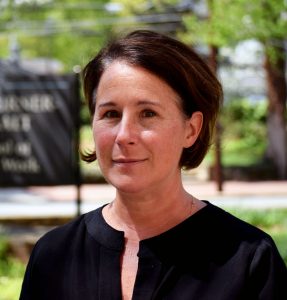 Kirsten Kainz, PhD is a research professor and assistant director of research development and translation in the School of Social Work at UNC-Chapel Hill. Her research and teaching focus on methods for investigating change and impact, particularly in the area of education equity and improvement. She actively facilitates school district improvement through her role as partnership consultant with the Strategic Education Research Partnership in Washington, DC and through her previous service as an elected school board member and engaged citizen.
Kirsten Kainz, PhD is a research professor and assistant director of research development and translation in the School of Social Work at UNC-Chapel Hill. Her research and teaching focus on methods for investigating change and impact, particularly in the area of education equity and improvement. She actively facilitates school district improvement through her role as partnership consultant with the Strategic Education Research Partnership in Washington, DC and through her previous service as an elected school board member and engaged citizen.
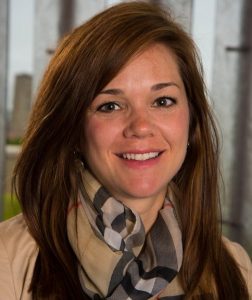 Leah Bartley, PhD, MSW is an Implementation Specialist with the National Implementation Research Network (NIRN) at the Frank Porter Graham Child Development Institute at the University of North Carolina at Chapel Hill. In her current role, she is supporting implementation science application in child welfare and early childhood initiatives. She also was a 2014-2016 Doris Duke Fellow for the Promotion of Child Wellbeing through the University of Chicago Chapin Hall. Previously, Dr. Bartley was a program manager for the Ruth Young Center for Children and Families where she provided technical assistance, data analysis, and implementation support to the replication of Family Connections, a child maltreatment prevention program. Furthermore, from 2008-2010, she was The Duke Endowment Fellow, following several years as a direct service social worker. Her most recent publications include a review of variables that have impacted fidelity of child maltreatment prevention related interventions and co-authorship on co-creative conditions for sustaining research evidence in public child welfare.
Leah Bartley, PhD, MSW is an Implementation Specialist with the National Implementation Research Network (NIRN) at the Frank Porter Graham Child Development Institute at the University of North Carolina at Chapel Hill. In her current role, she is supporting implementation science application in child welfare and early childhood initiatives. She also was a 2014-2016 Doris Duke Fellow for the Promotion of Child Wellbeing through the University of Chicago Chapin Hall. Previously, Dr. Bartley was a program manager for the Ruth Young Center for Children and Families where she provided technical assistance, data analysis, and implementation support to the replication of Family Connections, a child maltreatment prevention program. Furthermore, from 2008-2010, she was The Duke Endowment Fellow, following several years as a direct service social worker. Her most recent publications include a review of variables that have impacted fidelity of child maltreatment prevention related interventions and co-authorship on co-creative conditions for sustaining research evidence in public child welfare.
 Todd Jensen, PhD, MSW is a Research Associate in the Jordan Institute for Families and a Research Assistant Professor in the School of Social Work at the University of North Carolina at Chapel Hill. Dr. Jensen is committed to promoting family resilience and youth well-being, and transforming the systems that best support them. Dr. Jensen currently serves as Co-Principal Investigator on a federally funded, nationwide project aimed at supporting the U.S. Air Force Family Advocacy Program and their efforts to prevent family maltreatment among active duty members. Dr. Jensen serves as an investigator on two additional projects. One is a multi-year grant to support the development, implementation, and evaluation of the Get Ready Guilford Initiative, a large-scale community effort focused on promoting the healthy development and school readiness of children in Guilford County, North Carolina. The other is a multi-year contract to evaluate the Building Bridges Initiative, a state-wide effort in North Carolina to promote family engagement in youth psychiatric residential treatment facilities.
Todd Jensen, PhD, MSW is a Research Associate in the Jordan Institute for Families and a Research Assistant Professor in the School of Social Work at the University of North Carolina at Chapel Hill. Dr. Jensen is committed to promoting family resilience and youth well-being, and transforming the systems that best support them. Dr. Jensen currently serves as Co-Principal Investigator on a federally funded, nationwide project aimed at supporting the U.S. Air Force Family Advocacy Program and their efforts to prevent family maltreatment among active duty members. Dr. Jensen serves as an investigator on two additional projects. One is a multi-year grant to support the development, implementation, and evaluation of the Get Ready Guilford Initiative, a large-scale community effort focused on promoting the healthy development and school readiness of children in Guilford County, North Carolina. The other is a multi-year contract to evaluate the Building Bridges Initiative, a state-wide effort in North Carolina to promote family engagement in youth psychiatric residential treatment facilities.
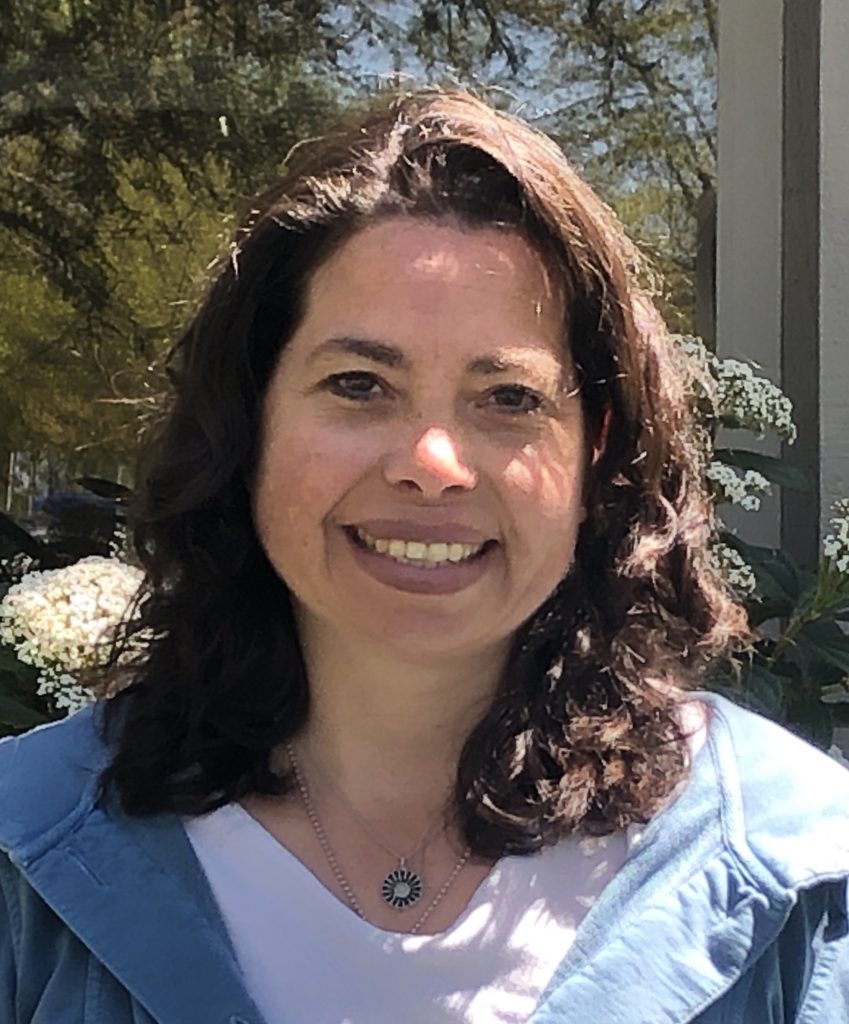 Lisa Saldana, PhD has a doctorate in clinical psychology with a research and clinical emphasis in child welfare populations and evidence-based practice. She is an implementation scientist and intervention developer. She currently is PI or co-I on multiple federally funded grants. Lisa is the primary developer of the Stages of Implementation Completion (SIC) and Cost of Implementing New Strategies (COINS) implementation tools, as well as the R3 supervisor implementation strategy, a workforce approach focused on infusing evidence-based strategies into every day interactions between families and frontline staff. She recently has launched a new grant to evaluate the SIC Coaching strategy to integrate the use of SIC data into clinical consultation processes. Lisa also is the developer of the FAIR model, an integrative treatment for parental substance abuse and child neglect that has undergone rigorous testing and for which implementation protocols are being developed. She is the Clinic Director of the ODI Clinic, where FAIR currently is being implemented throughout the largest county in Oregon. Lisa and colleagues have been a part of multiple additional scale-up efforts of evidence-based programs both domestically and internationally.
Lisa Saldana, PhD has a doctorate in clinical psychology with a research and clinical emphasis in child welfare populations and evidence-based practice. She is an implementation scientist and intervention developer. She currently is PI or co-I on multiple federally funded grants. Lisa is the primary developer of the Stages of Implementation Completion (SIC) and Cost of Implementing New Strategies (COINS) implementation tools, as well as the R3 supervisor implementation strategy, a workforce approach focused on infusing evidence-based strategies into every day interactions between families and frontline staff. She recently has launched a new grant to evaluate the SIC Coaching strategy to integrate the use of SIC data into clinical consultation processes. Lisa also is the developer of the FAIR model, an integrative treatment for parental substance abuse and child neglect that has undergone rigorous testing and for which implementation protocols are being developed. She is the Clinic Director of the ODI Clinic, where FAIR currently is being implemented throughout the largest county in Oregon. Lisa and colleagues have been a part of multiple additional scale-up efforts of evidence-based programs both domestically and internationally.
 Kim DuMont is a senior program officer at the William T. Grant Foundation, which invests in high-quality research focused on reducing inequality and improving the use of research evidence in ways that benefit youth in the United States.
Kim DuMont is a senior program officer at the William T. Grant Foundation, which invests in high-quality research focused on reducing inequality and improving the use of research evidence in ways that benefit youth in the United States.
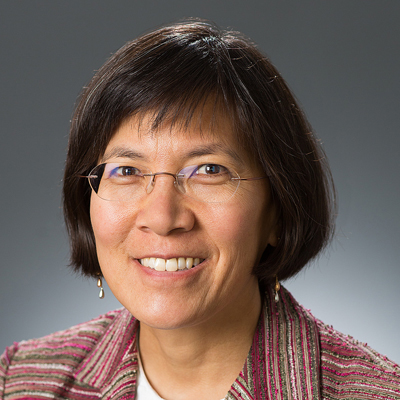 Beadsie Woo is a Senior Associate in Evidence-Based Practice Group at the Annie E. Casey Foundation. She specializes in developing implementation science tools for Foundation initiatives. In 2016, she worked as a senior policy advisor in the White House Offices of Social Innovation and Science and Technology Policy, working with agencies to deepen their evidence capacity and disseminate evidence of what works.
Beadsie Woo is a Senior Associate in Evidence-Based Practice Group at the Annie E. Casey Foundation. She specializes in developing implementation science tools for Foundation initiatives. In 2016, she worked as a senior policy advisor in the White House Offices of Social Innovation and Science and Technology Policy, working with agencies to deepen their evidence capacity and disseminate evidence of what works.
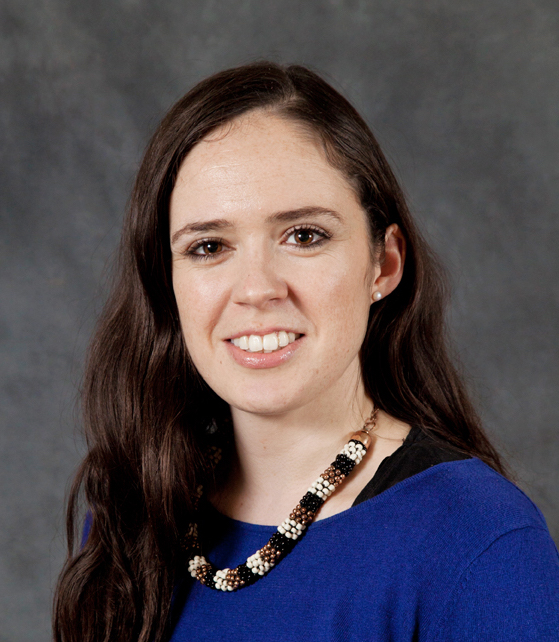 Aisling Sheehan, PhD is a project specialist at the Centre for Effective Services (CES) in Ireland. CES works with agencies, government departments and service providers to improve the use of evidence and support implementation of services, policies and initiatives. She leads on supporting implementation of large-scale national initiatives, such as the Nurture Programme, an Irish initiative aimed at enhancing the quality of child health services and improving child and family outcomes. She regularly works with human and social service providers to build Implementation Science capacity. Aisling is a psychologist and holds a PhD in Health Services Research from the Royal College of Surgeons in Ireland.
Aisling Sheehan, PhD is a project specialist at the Centre for Effective Services (CES) in Ireland. CES works with agencies, government departments and service providers to improve the use of evidence and support implementation of services, policies and initiatives. She leads on supporting implementation of large-scale national initiatives, such as the Nurture Programme, an Irish initiative aimed at enhancing the quality of child health services and improving child and family outcomes. She regularly works with human and social service providers to build Implementation Science capacity. Aisling is a psychologist and holds a PhD in Health Services Research from the Royal College of Surgeons in Ireland.
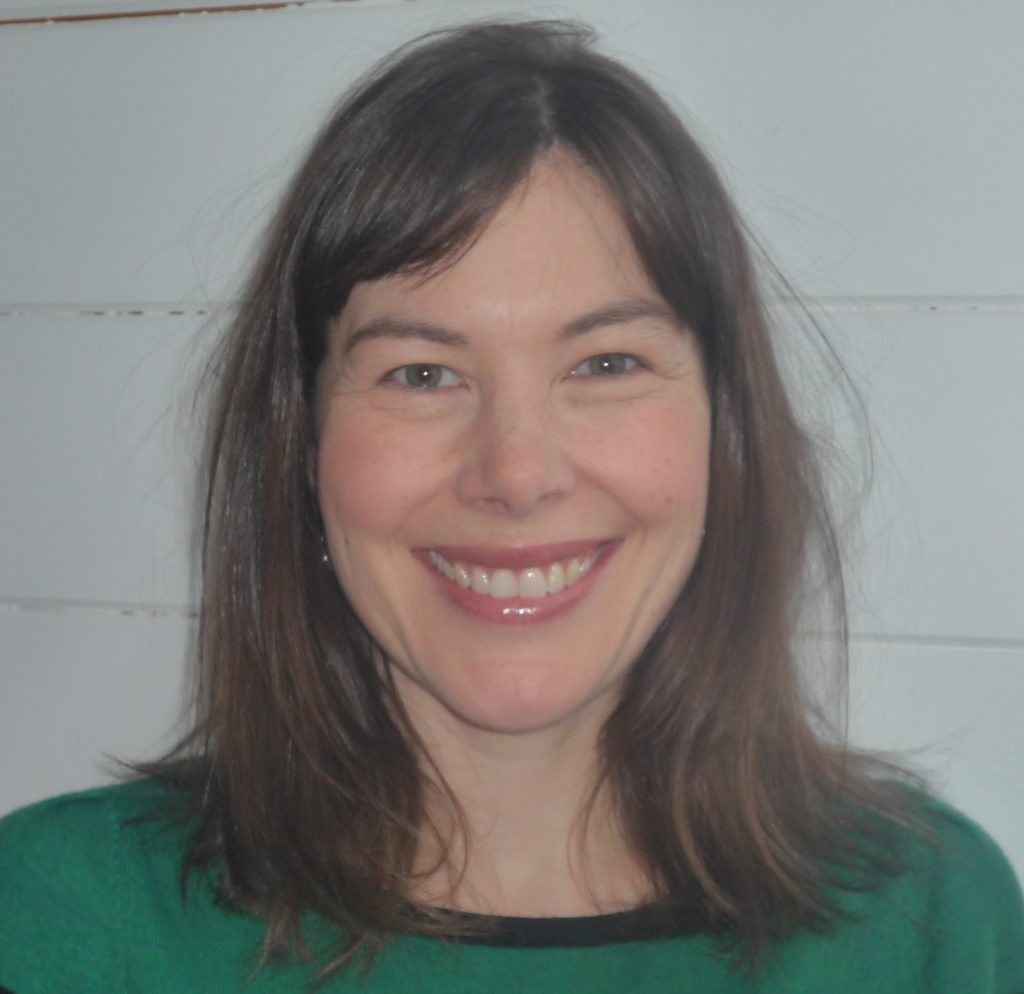 Marita Brack, PhD is a Clinical Psychologist, and Head of Programme for the Parenting workstream, within the Psychology Directorate at NHS Education for Scotland (NES). Marita worked as a Clinical Psychologist for 15 years within specialist services for children and young people, both in Scotland and Australia and has a long-standing interest in the early years, early intervention and evidence-based parenting interventions. Marita holds a Master of Public Health, and for the past 9 years she has been leading work through NES around supporting the implementation of evidence based parenting approaches with Community Planning Partnerships across Scotland, as well as the current development of the Early Intervention Framework for Children and Young People’s Mental Health and Mental Well-being. Marita has also worked within university settings in both Australia and Scotland in relation to the training of applied Psychologists.
Marita Brack, PhD is a Clinical Psychologist, and Head of Programme for the Parenting workstream, within the Psychology Directorate at NHS Education for Scotland (NES). Marita worked as a Clinical Psychologist for 15 years within specialist services for children and young people, both in Scotland and Australia and has a long-standing interest in the early years, early intervention and evidence-based parenting interventions. Marita holds a Master of Public Health, and for the past 9 years she has been leading work through NES around supporting the implementation of evidence based parenting approaches with Community Planning Partnerships across Scotland, as well as the current development of the Early Intervention Framework for Children and Young People’s Mental Health and Mental Well-being. Marita has also worked within university settings in both Australia and Scotland in relation to the training of applied Psychologists.
A special thanks to UNC-CH School of Social Work and FPG Child Development Institute Leadership for their support:
Bob Blouin, PharmD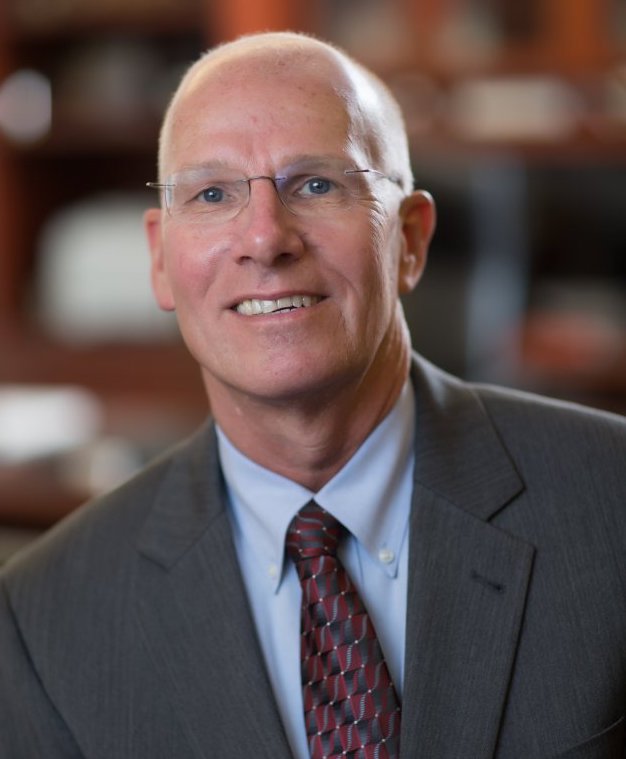 is the Executive Vice Chancellor, Provost (“provost”), and Chief Academic Officer of the University of North Carolina at Chapel Hill and serves as the Chief Operating Officer of the university. The provost also has oversight responsibilities for budget and planning. A key mission of the provost is to ensure Carolina attracts, develops and retains leading faculty members focused on inspiring students for success in a rapidly changing global economy. During his tenure as dean, the UNC Eshelman School of Pharmacy was recognized as one of the premier pharmacy programs in the world. In addition, the school initiated a first-of-its-kind professional degree granting partnership program in Asheville, North Carolina, which focuses on ambulatory care and rural health. Under Blouin’s leadership, the faculty research portfolio increased from $2 million in 2002 to $36 million in 2016, ranking second among the nation’s pharmacy schools. Blouin obtained a historic $100M gift from Dr. Fred Eshelman to create the Eshelman Institute for Innovation where he served as Director. He also led a cutting-edge effort to find creative ways to accelerate change in education and health care. He will continue to serve as the school’s Bryson Distinguished Professor.
is the Executive Vice Chancellor, Provost (“provost”), and Chief Academic Officer of the University of North Carolina at Chapel Hill and serves as the Chief Operating Officer of the university. The provost also has oversight responsibilities for budget and planning. A key mission of the provost is to ensure Carolina attracts, develops and retains leading faculty members focused on inspiring students for success in a rapidly changing global economy. During his tenure as dean, the UNC Eshelman School of Pharmacy was recognized as one of the premier pharmacy programs in the world. In addition, the school initiated a first-of-its-kind professional degree granting partnership program in Asheville, North Carolina, which focuses on ambulatory care and rural health. Under Blouin’s leadership, the faculty research portfolio increased from $2 million in 2002 to $36 million in 2016, ranking second among the nation’s pharmacy schools. Blouin obtained a historic $100M gift from Dr. Fred Eshelman to create the Eshelman Institute for Innovation where he served as Director. He also led a cutting-edge effort to find creative ways to accelerate change in education and health care. He will continue to serve as the school’s Bryson Distinguished Professor.
Gary Bowen, PhD is Dean and Kenan Distinguished Professor in the School of Social Work at the University of North Carolina at Chapel Hill. Dr. Bowen currently co-directs the School Success Profile (SSP) project. The two student-level assessments that have emerged from this work — the School Success Profile and the Elementary School Success Profile — have been administered to nearly 100,000 students in nearly 2,000 schools and youth-serving agencies. The SSP or parts of the SSP have been translated into five languages: Spanish, Hebrew, Lithuanian, Romanian, and Portuguese. Dr. Bowen developed the School Success Profile Learning Organization (SSP-LO) instrument to assess schools’ organizational readiness for innovation. Dr. Bowen also has extensive experience working with all branches of the military services, and during the past 30 years, he has visited installations worldwide in the context of consulting with military policy makers, researchers, and practitioners across a range of mental health and social service issues. In 2017, Dr. Bowen was selected as an American Academy of Social Work and Social Welfare Fellow for his distinguished accomplishment as a scholar and practitioner dedicated to achieving excellence in his work to advance social good.
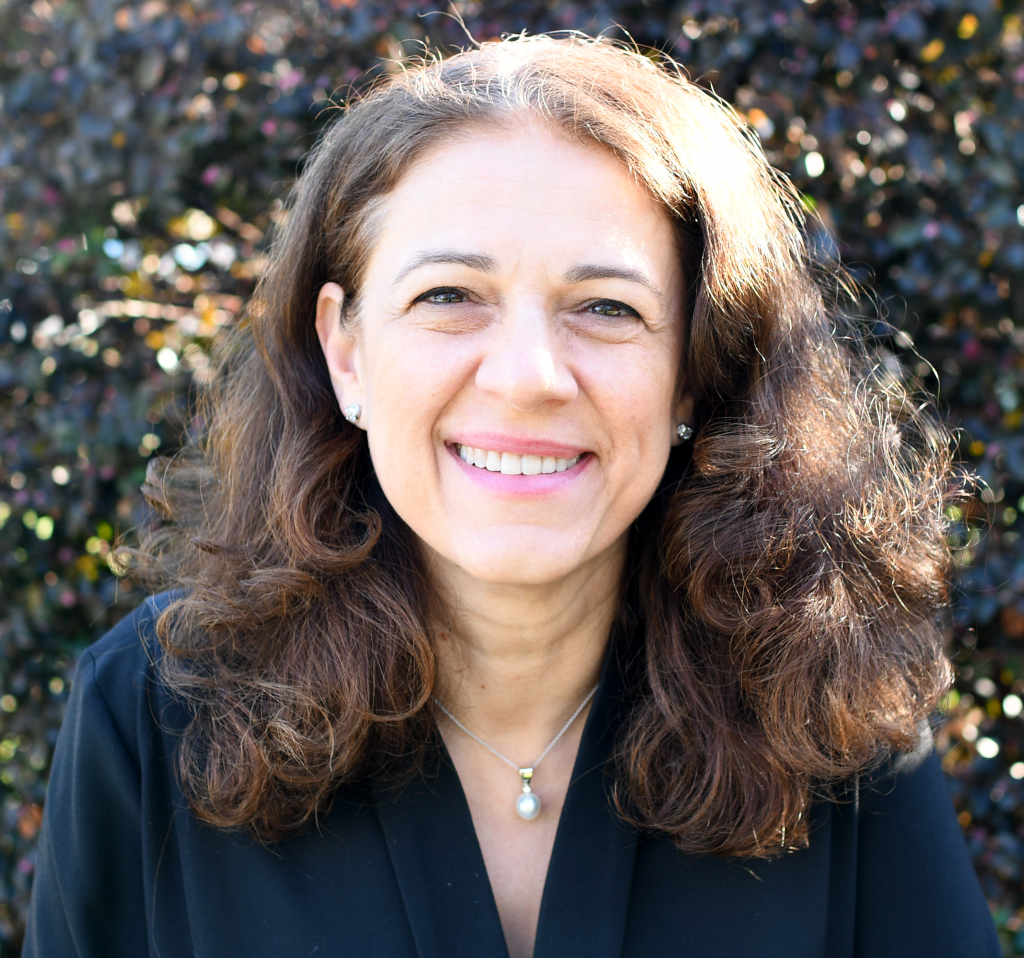 Aysenil Belger, PhD is Director of the Frank Porter Graham Child Development Institute, Professor and Director of Neuroimaging Research in Psychiatry, and adjunct Professor in the Department of Psychology at the University of North Carolina at Chapel Hill and at the Duke-UNC Brain Imaging and Analysis Center. Dr. Belger is a cognitive neuroscientist whose research focuses on translational and interdisciplinary studies of brain circuits underlying attention, emotion and decision making, and how these circuits break down in neuropsychiatric and neuro-development disorders such as schizophrenia and autism. Dr. Belger combines functional magnetic resonance imaging (fMRI), electrophysiological scalp recording (EEG), functional near infrared spectroscopy (fNIRS), experimental psychology and neuropsychological assessment techniques to understanding the development of the adolescent brain, and how nature/nurture interactions provide particular vulnerability to individuals who develop schizophrenia or autism. Her integrative research has most recently pioneered exploration of electrophysiological and functional abnormalities in young autistic children, as well as children, adolescents and adults at clinical and familial risk for psychosis. Dr. Belger is part of a large interdisciplinary team of investigators conducting multi-institutional studies exploring the impact of early childhood abuse and neglect on adult brain function, structure and substance abuse outcomes. Recent studies from Dr. Belger’s laboratory have demonstrated that parents of children with autism share phenotypic and neurobiological markers associated with aberrant social information processing. She eagerly mentors multiple undergraduate, graduate and medical students, as well postdoctoral trainees and junior faculty.
Aysenil Belger, PhD is Director of the Frank Porter Graham Child Development Institute, Professor and Director of Neuroimaging Research in Psychiatry, and adjunct Professor in the Department of Psychology at the University of North Carolina at Chapel Hill and at the Duke-UNC Brain Imaging and Analysis Center. Dr. Belger is a cognitive neuroscientist whose research focuses on translational and interdisciplinary studies of brain circuits underlying attention, emotion and decision making, and how these circuits break down in neuropsychiatric and neuro-development disorders such as schizophrenia and autism. Dr. Belger combines functional magnetic resonance imaging (fMRI), electrophysiological scalp recording (EEG), functional near infrared spectroscopy (fNIRS), experimental psychology and neuropsychological assessment techniques to understanding the development of the adolescent brain, and how nature/nurture interactions provide particular vulnerability to individuals who develop schizophrenia or autism. Her integrative research has most recently pioneered exploration of electrophysiological and functional abnormalities in young autistic children, as well as children, adolescents and adults at clinical and familial risk for psychosis. Dr. Belger is part of a large interdisciplinary team of investigators conducting multi-institutional studies exploring the impact of early childhood abuse and neglect on adult brain function, structure and substance abuse outcomes. Recent studies from Dr. Belger’s laboratory have demonstrated that parents of children with autism share phenotypic and neurobiological markers associated with aberrant social information processing. She eagerly mentors multiple undergraduate, graduate and medical students, as well postdoctoral trainees and junior faculty.
Information About Lodging
If you require lodging, there will be a room block reserved for the evenings of June 9th, 10th and 11th at the Carolina Inn (https://www.carolinainn.com). To make a reservation under the room block, click this direct link HERE or enter group code 733040 when booking on the Carolina Inn website. The discounted rate for the room block is only available through April 30th. Rooms might be available after this date at regular pricing.
In addition to the Carolina Inn, here are some nearby hotels to consider:
- The Franklin Hotel Chapel Hill
- 311 West Franklin Street, Chapel Hill, NC 27516
- *This hotel is a 0.6-mile walk away (about 13 min.) from the School of Social Work.
- Aloft Chapel Hill
- 1001 South Hamilton Road, Chapel Hill, NC 27517
- *This hotel is a 15-minute bus ride away from the School of Social Work via the Chapel Hill Transit V and S lines (free).
- AC Hotel Chapel Hill Downtown
- 214 West Rosemary Street, Chapel Hill, NC 27516
- *This hotel is a 0.6-mile walk away (about 13 min.) from the School of Social Work.
Information About Parking
The most reliable place to park is in the UNC Hospital lot on Manning Drive. The parking fee is $1.50/ hour. The Carolina Inn next door on Pittsboro Street has space-available pay parking for a flat fee of $20/day. There are also numerous “park & ride” locations in Chapel Hill, with bus service to (or near) the School of Social Work.
Visit https://ssw.unc.edu/about/directions for more details.


